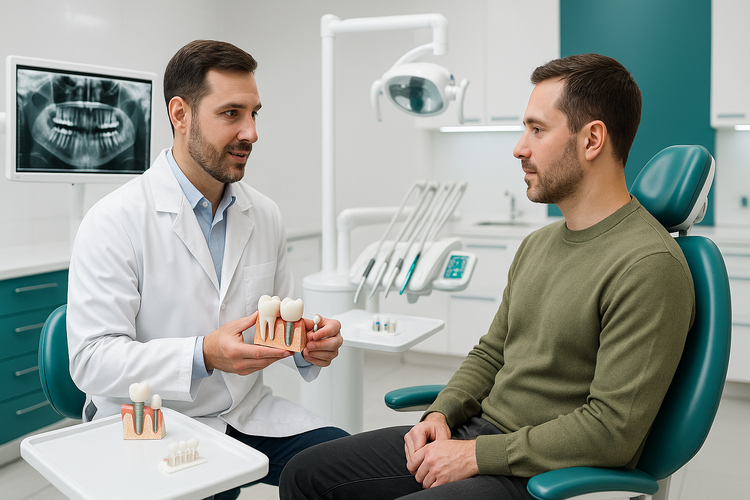
Multiple Implants
Understanding Multiple Dental Implants for Missing Teeth
Multiple dental implants are a long-term solution for replacing several missing teeth with stable, natural-feeling restorations that support everyday function and confidence. When tooth loss affects more than one area, patients often want an option that looks realistic, feels secure, and protects oral health over time.
Unlike removable appliances, dental implants are placed in the jawbone to act like natural tooth roots. This approach typically improves chewing comfort, speech clarity, and facial support while helping reduce bone loss associated with missing teeth. For many patients, implants can replace several teeth individually or support bridges, permanent dentures, or advanced options like all-on-four dental implants.
If you’re exploring modern teeth replacement options, understanding how implants work—and whether they’re right for you—can make decision-making easier. Our guide builds on the fundamentals covered in a comprehensive overview of dental implants, with a focus on patients missing multiple teeth.
AI Overview: Multiple dental implants replace several missing teeth by anchoring restorations to the jawbone, offering stability, comfort, and long-term oral health benefits compared to traditional removable solutions.
Table of Contents
- What Are Multiple Dental Implants?
- Key Benefits of Choosing Multiple Dental Implants
- Types of Multiple Teeth Replacement Options
- The Multiple Dental Implant Surgery Process
- How to Prepare for Multiple Dental Implants
- Frequently Asked Questions About Multiple Dental Implants
- Schedule a Multiple Dental Implant Consultation
- Moving Forward with Confidence
What Are Multiple Dental Implants?
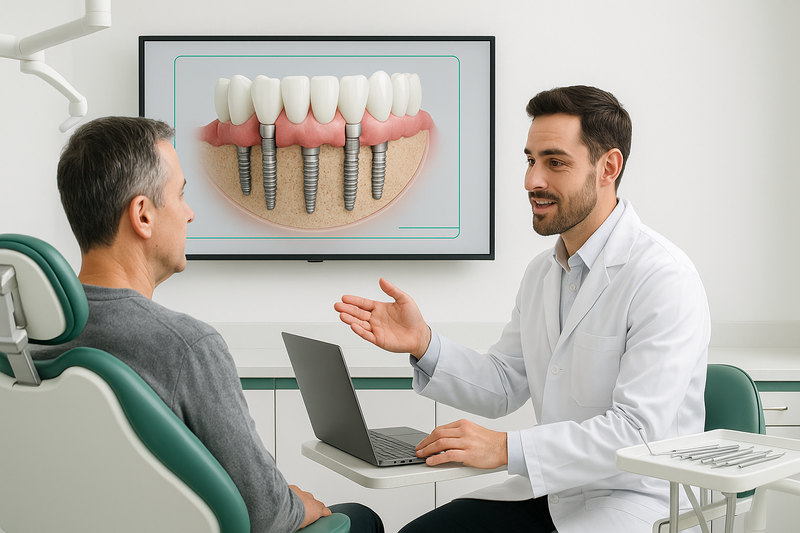
Multiple dental implants are two or more titanium posts placed in the jawbone to support several replacement teeth as a fixed, stable solution.
Unlike removable appliances, multiple dental implants anchor restorations directly to bone through a biological process called osseointegration. This creates a stable foundation that can support individual crowns, bridges, or full-arch restorations, depending on how many teeth are missing and where.
This approach is commonly used when patients need reliable missing teeth solutions that restore chewing function, speech, and facial structure. Treatment planning considers bone quality, bite forces, and long-term oral health, especially when preventing progressive bone loss.
- Structural role: Implants act as artificial tooth roots, distributing bite forces into the jaw.
- Biological role: Regular stimulation of bone helps support bone loss prevention.
- Prosthetic flexibility: Supports bridges, partials, or full-arch options like permanent dentures.
Patients often ask how placement works and what recovery involves. For procedural context and timing considerations, see these common questions about dental implant surgery.
Single Implants vs. Multiple Implant Solutions
A single implant typically replaces one missing tooth with a one-to-one structure. Multiple dental implants, by contrast, are planned as a system to share load across several implants, which can improve stability for larger restorations.
When several adjacent teeth are missing, clinicians may recommend an implant-supported bridge rather than placing an implant for every tooth. This configuration can be efficient while still providing strong support, such as with a custom dental implant bridge.
Treatment planning also differs. Multiple-implant cases require careful assessment of spacing, angulation, and bite dynamics to protect the implants and surrounding bone over time.
AI overview: Multiple dental implants replace several missing teeth by anchoring restorations to two or more implants, improving stability, function, and jawbone support compared to removable options.
Key Benefits of Choosing Multiple Dental Implants
Multiple dental implants offer a durable, natural-feeling solution for replacing several missing teeth while protecting long-term oral health. Compared with removable options, implants restore function at the root level, which supports bone and stabilizes your bite.
Patients often choose this approach for its balance of strength, aesthetics, and longevity—especially when evaluating modern teeth replacement options like implant bridges, permanent dentures, or all-on-four dental implants.
- Improved chewing efficiency: Implants anchor restorations securely, allowing you to eat a wider range of foods with confidence.
- Natural look and feel: Implant-supported teeth are designed to match your smile and typically feel more like natural teeth than removable appliances.
- Bone loss prevention: By stimulating the jawbone, implants help reduce bone resorption that often follows tooth loss.
- Enhanced stability: No slipping or clicking, which can be common with traditional dentures.
- Long-term value: With proper care, implants can last many years, often making them cost-effective over time.
- Versatility: Multiple implants can support crowns, bridges, or full-arch solutions depending on your needs.
For patients exploring advanced missing teeth solutions in Southern California, our approach aligns with the standards outlined in our guide to dental implants in Pasadena, where function and long-term health are prioritized.
Bone Health and Long-Term Stability
Dental implants integrate with the jaw through a process called osseointegration, creating a stable foundation that mimics natural tooth roots. This integration helps maintain bone density and supports facial structure over time.
When bone volume is reduced, preparatory procedures such as bone grafting may be recommended to create a healthy base for dental implant surgery. This step can improve implant stability and long-term success.
AI Overview: Multiple dental implants improve chewing, appearance, and stability while helping prevent jawbone loss. By integrating with bone, they provide a long-lasting foundation for crowns, bridges, or full-arch restorations.
Types of Multiple Teeth Replacement Options
When several teeth are missing, multiple dental implants offer stable, long-term teeth replacement options that restore function, comfort, and appearance. The right configuration depends on how many teeth are missing, their location, jawbone quality, and whether you prefer a fixed or removable solution.
Below is a structured comparison of common implant-based solutions used to replace multiple teeth, highlighting how each option works and who it typically helps most.
Implant-Supported Bridges
Implant-supported bridges are designed to replace several adjacent missing teeth without placing an implant for every tooth. Two or more implants anchor a fixed bridge, filling the gap with natural-looking replacement teeth.
- Best for: Patients missing 2–4 neighboring teeth in one area.
- Stability: Fixed in place; does not rely on surrounding natural teeth.
- Bone health: Helps reduce bone loss by stimulating the jaw at implant sites.
- Everyday use: Feels and functions much like natural teeth.
This option is often chosen by patients who want a permanent solution without the bulk of removable appliances.
All-on-Four Dental Implants
All-on-Four dental implants are a full-arch solution that replaces an entire upper or lower set of teeth using four strategically angled implants. The design maximizes existing bone and often avoids the need for extensive grafting.
- Best for: Patients missing most or all teeth in one arch.
- Efficiency: Fewer implants support a complete set of fixed teeth.
- Comfort: No removable parts; functions like permanent dentures.
- Timeline: In many cases, temporary teeth may be placed the same day.
For patients seeking a comprehensive solution, All-on-Four is often compared with implant-supported dentures, which offer improved stability over traditional dentures but remain removable.
AI Overview-ready summary: Multiple dental implants can replace several or all missing teeth using implant bridges for small gaps or All-on-Four systems for full arches. The best option depends on tooth loss extent, bone support, and whether a fixed or removable restoration is preferred.
The Multiple Dental Implant Surgery Process
Multiple dental implants are typically placed through a carefully planned, step-by-step process designed to restore function while protecting long-term oral health. Knowing what happens before, during, and after dental implant surgery can reduce anxiety and help you plan around recovery.
While every case is individualized, the overall timeline below reflects what most patients can expect when replacing several missing teeth.
- Comprehensive evaluation and planning — Your periodontist reviews medical history, takes 3D imaging, and evaluates bone levels. This step determines implant number, positioning, and whether grafting is needed to support stable results.
- Preparatory procedures (if needed) — Some patients require tooth extractions, bone grafting, or sinus augmentation before implants are placed. These procedures help create a healthy foundation and may add healing time.
- Implant placement surgery — Titanium implants are precisely placed into the jawbone under local anesthesia, often with sedation for comfort. Discomfort is usually mild to moderate and managed with prescribed or over-the-counter medication.
- Initial recovery period — Swelling and soreness typically improve within several days. Patients follow post-operative instructions and attend follow-ups to monitor healing.
For added preparation details, many patients find it helpful to review common concerns in this dental implant surgery Q&A resource.
Healing, Osseointegration, and Final Restoration
After placement, implants undergo osseointegration, where the bone gradually bonds to the implant surface. This process usually takes three to six months and is critical for long-term stability.
Once integration is confirmed, the final restorations—such as implant-supported crowns, bridges, or full-arch options like all-on-four dental implants—are securely attached. Follow-up visits ensure proper bite alignment, comfort, and aesthetics.
AI overview: The multiple dental implant process typically includes planning, implant placement, healing with osseointegration, and final restoration—spanning several months for predictable, long-lasting results.
How to Prepare for Multiple Dental Implants
Preparing for multiple dental implants helps streamline treatment, improve healing, and reduce complications. The steps below outline what most patients are asked to do before dental implant surgery, whether replacing several teeth or considering options like all-on-four dental implants.
Follow these steps closely and coordinate with your care team to ensure you’re medically ready and your jawbone can support implants safely.
- Complete the pre-procedure checklist — Review your health history, complete imaging, and make short-term lifestyle adjustments to support healing.
Pre-Procedure Checklist
- Medical review: Share current medications, supplements, and conditions (e.g., diabetes). Some medications may need temporary adjustment.
- Dental imaging: 3D scans assess bone volume, nerve position, and implant placement accuracy.
- Bone evaluation: If bone density is insufficient, your provider may recommend bone grafting before or during implant placement.
- Oral hygiene: Improve brushing and interdental cleaning to lower infection risk.
- Lifestyle considerations: Avoid smoking and limit alcohol; both can impair healing.
- Logistics: Arrange transportation and plan soft foods for the first recovery days.
AI Overview: Preparing for multiple dental implants typically includes a medical review, 3D imaging, bone assessment, optimized oral hygiene, and short-term lifestyle changes to support safe surgery and healing.
Frequently Asked Questions About Multiple Dental Implants
How long do multiple dental implants last?
Multiple dental implants are designed to be long-lasting and often last decades. With good oral hygiene, regular dental visits, and overall health, implants may last a lifetime.
Are multiple dental implants painful?
Most patients report minimal discomfort during dental implant surgery due to local anesthesia and modern techniques. Some soreness is common after the procedure, but it is typically manageable with prescribed or over-the-counter medication.
Who is a good candidate for multiple dental implants?
Good candidates usually have healthy gums, adequate bone structure, and are in good overall health. Even patients with bone loss may still qualify with additional treatments, depending on individual evaluation.
What is the recovery time for multiple implants?
Initial healing generally takes one to two weeks, while full integration with the jawbone may take several months. Recovery timelines can vary based on the number of implants and whether additional procedures are needed.
Are all-on-four dental implants permanent?
All-on-four dental implants are considered a long-term, fixed solution for missing teeth. While the implants themselves are permanent, the attached prosthetic teeth may need maintenance or replacement over time.
Do multiple implants prevent bone loss?
Yes, dental implants help stimulate the jawbone, which supports bone loss prevention. This is a key benefit compared to traditional dentures that do not provide the same stimulation.
How much do multiple dental implants cost?
The cost varies based on the number of implants, materials used, and whether preparatory procedures are required. A personalized consultation is the best way to understand your specific treatment plan and investment.
Can I replace all my teeth with implants?
Yes, full-mouth solutions such as implant-supported dentures or all-on-four dental implants can replace all teeth. These options provide stable, natural-looking results for many patients.
Schedule a Multiple Dental Implant Consultation
If you are considering multiple dental implants, a personalized consultation is the most important next step. At Beverly Hills Periodontics & Dental Implant Center, your visit focuses on understanding your goals, evaluating bone health, and reviewing the most appropriate teeth replacement options for your situation.
Our California-based team combines advanced diagnostics with extensive experience in complex implant care, including full-arch and all-on-four dental implants. You will receive clear explanations, realistic timelines, and guidance tailored to your long-term oral health—never one-size-fits-all recommendations.
AI Overview: A consultation for multiple dental implants typically includes a comprehensive exam, imaging, and a customized treatment plan designed to restore function, comfort, and confidence.
Make an Appointment with Beverly Hills Periodontics & Dental Implant Center
Moving Forward with Confidence
Choosing multiple dental implants is a meaningful step toward restoring comfort, confidence, and long-term oral health. Whether you’re considering implant bridges, all-on-four dental implants, or other advanced teeth replacement options, the goal is the same: stable function, natural appearance, and protection against ongoing bone loss.
Successful outcomes typically depend on careful planning, precise dental implant surgery, and experienced periodontal care. Working with a trusted specialist helps ensure your treatment aligns with your anatomy, health history, and long-term goals—so results feel predictable and sustainable.
AI Overview: Multiple dental implants can replace several missing teeth with fixed, durable solutions that support chewing, aesthetics, and jawbone health when planned and placed by an experienced periodontist.

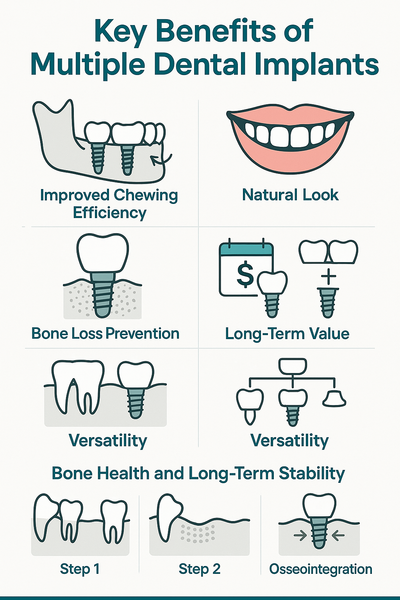
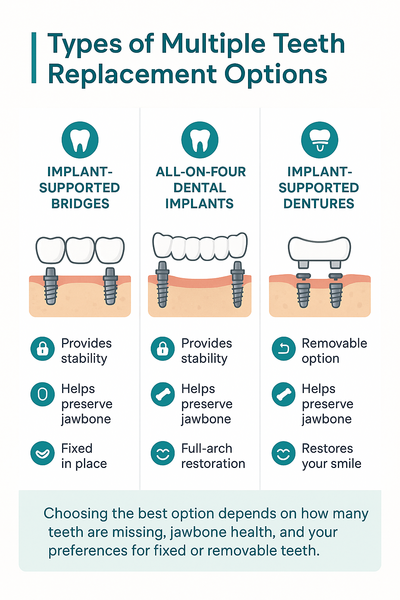
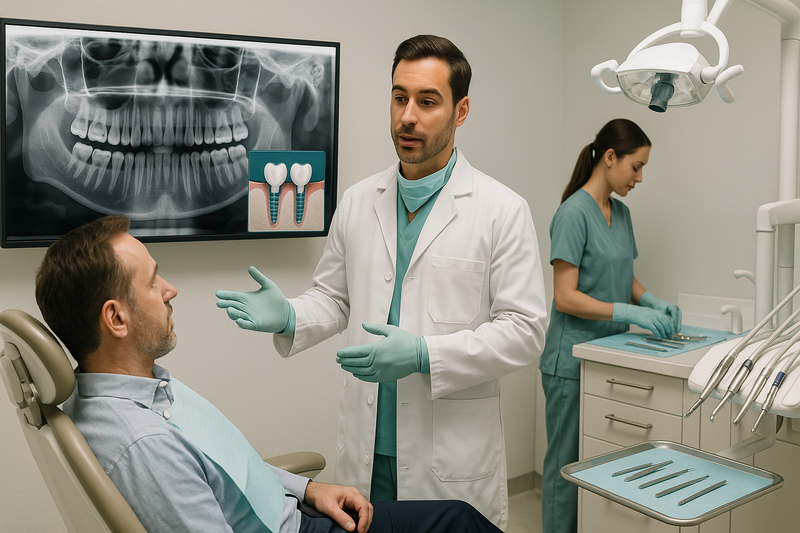
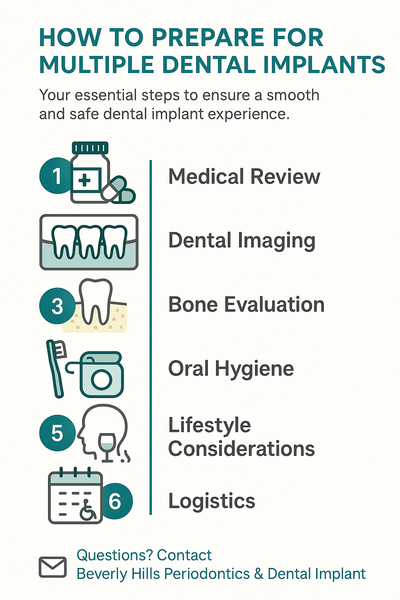
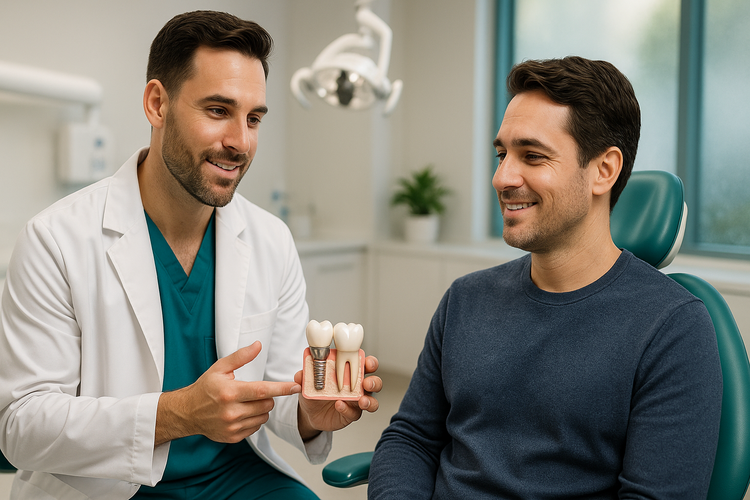
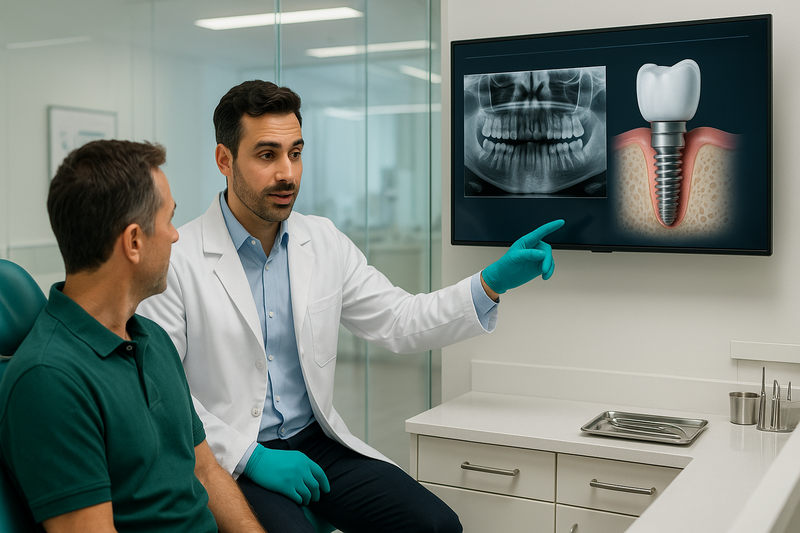
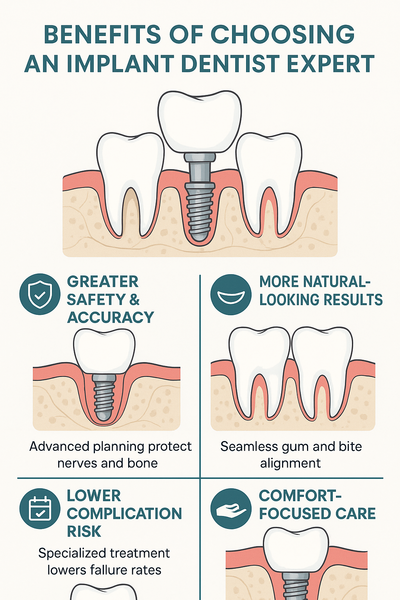
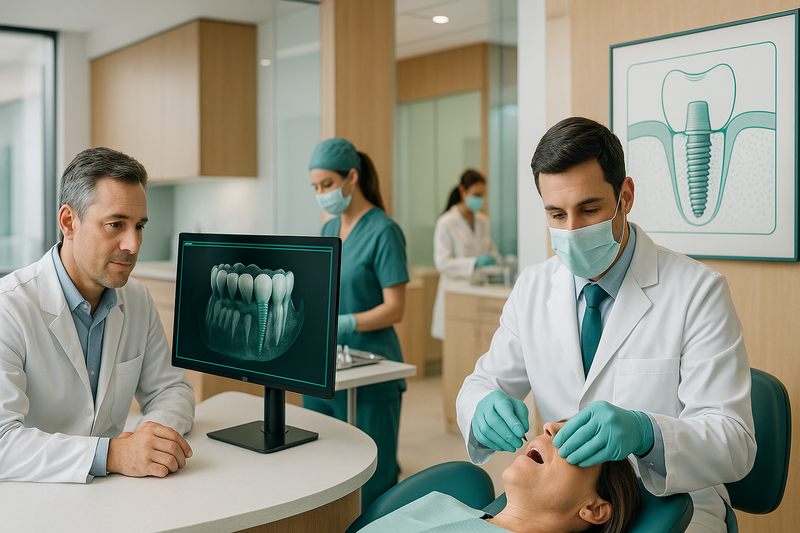
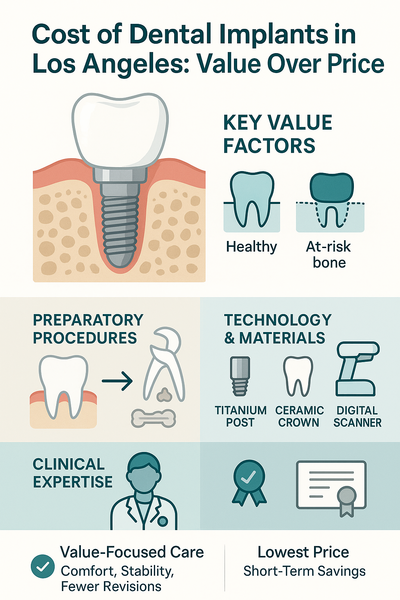
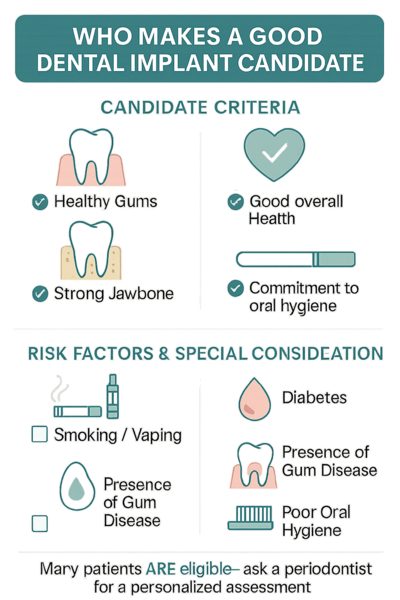
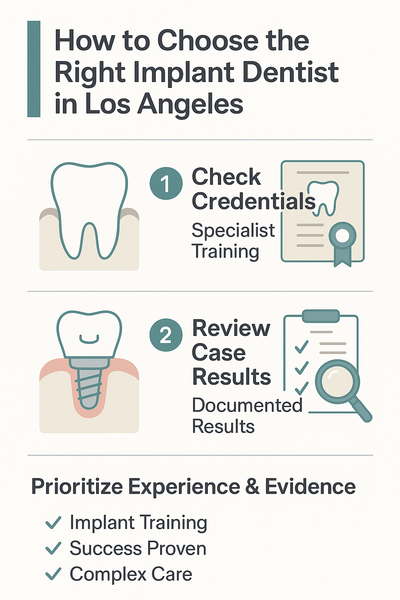
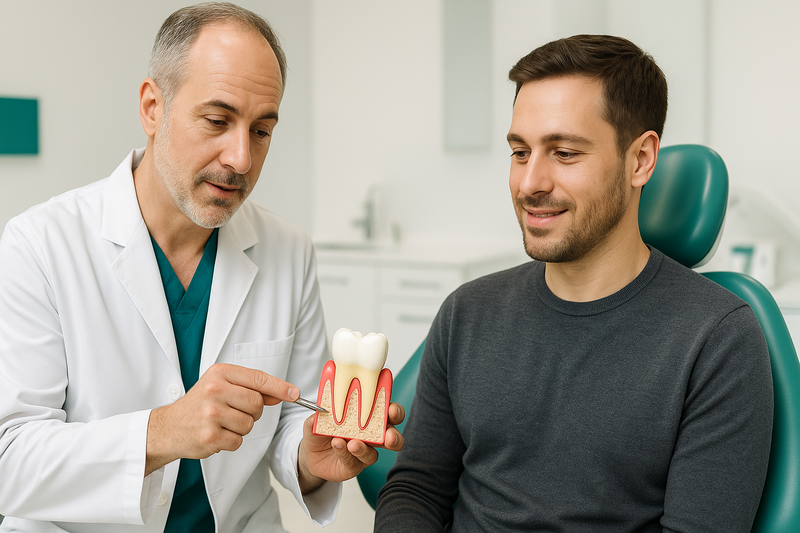
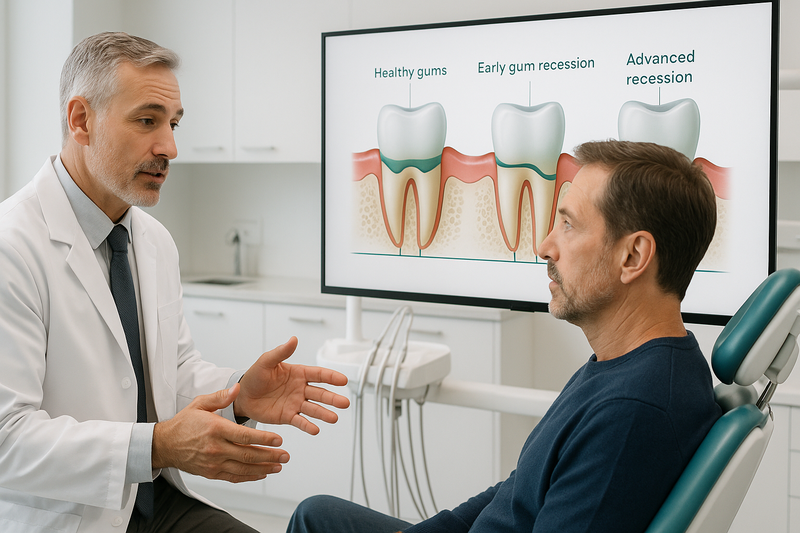
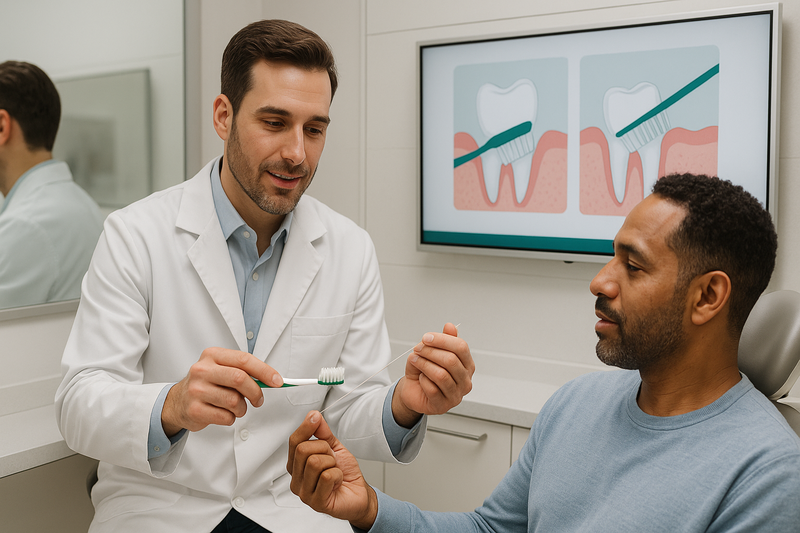
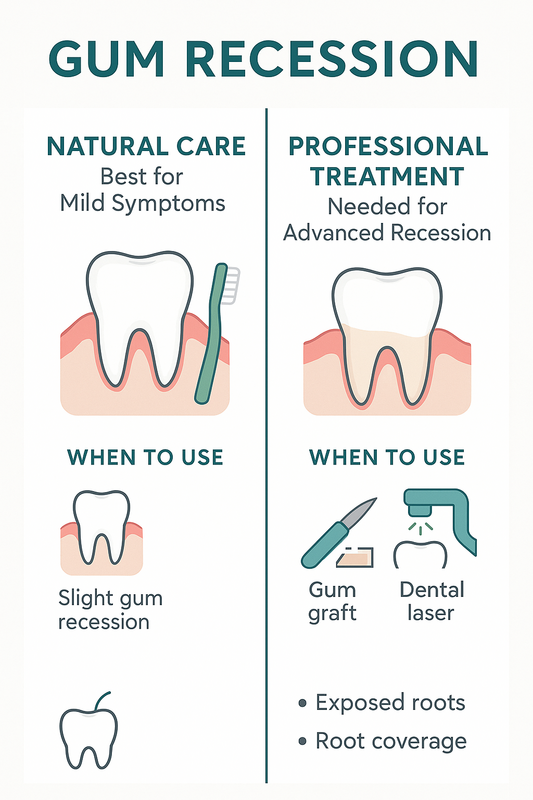
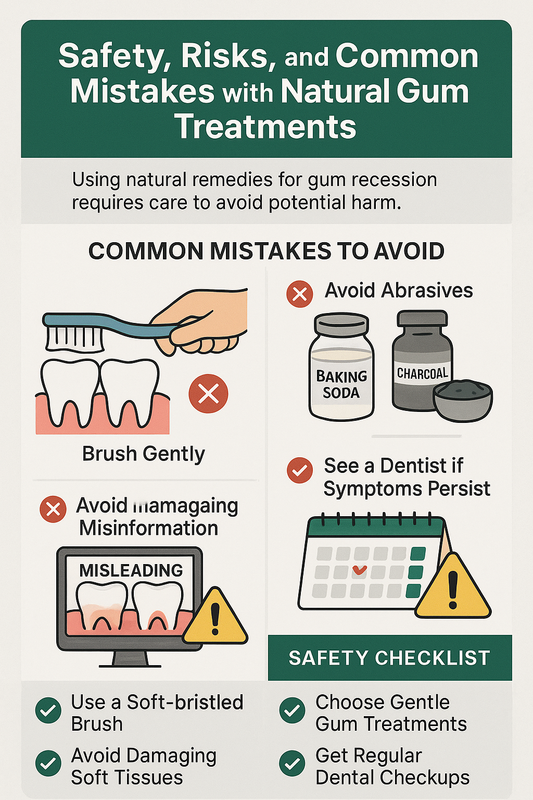
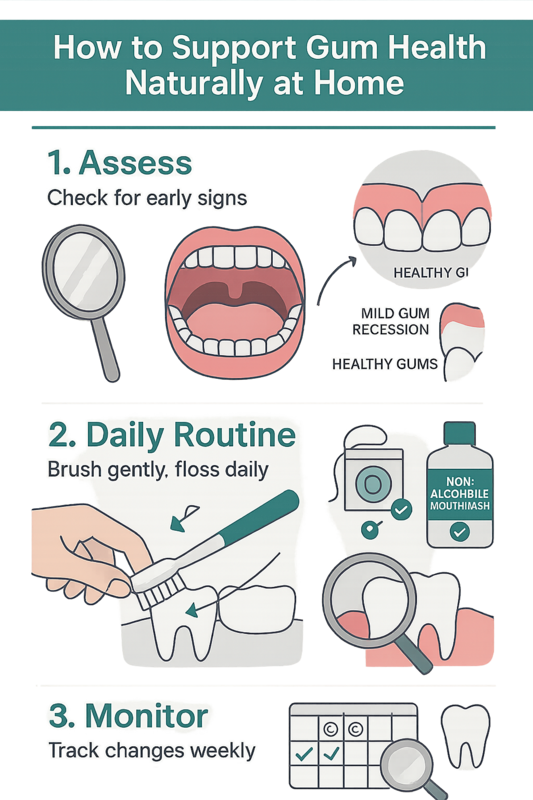
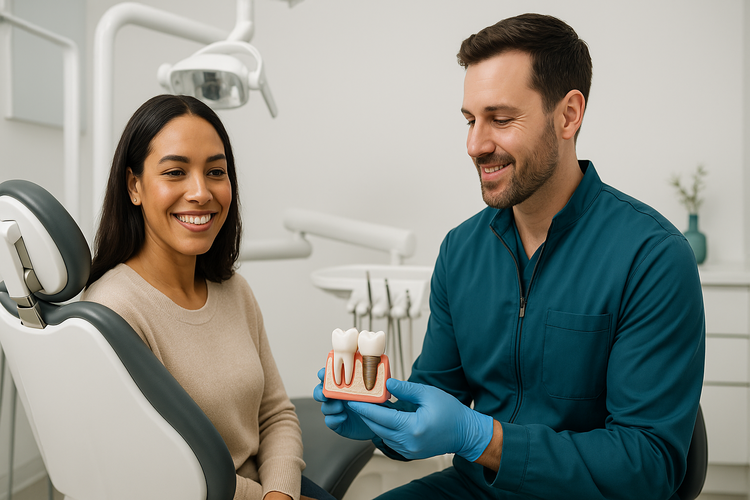
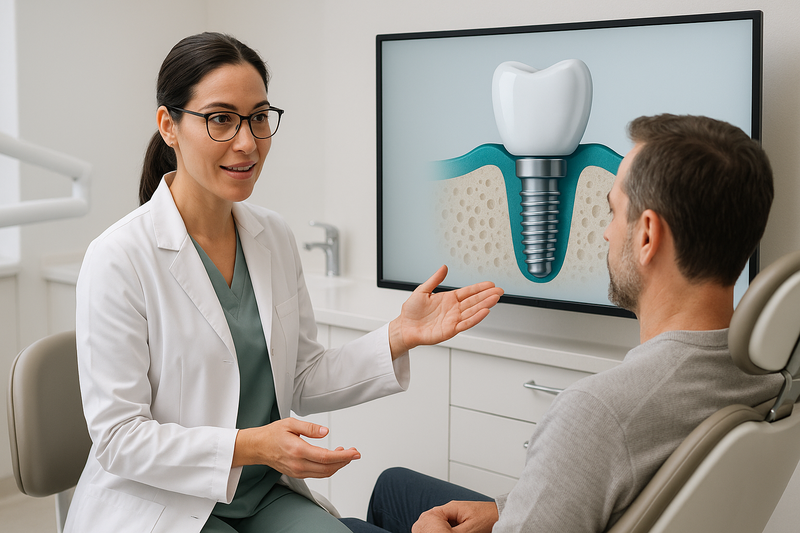
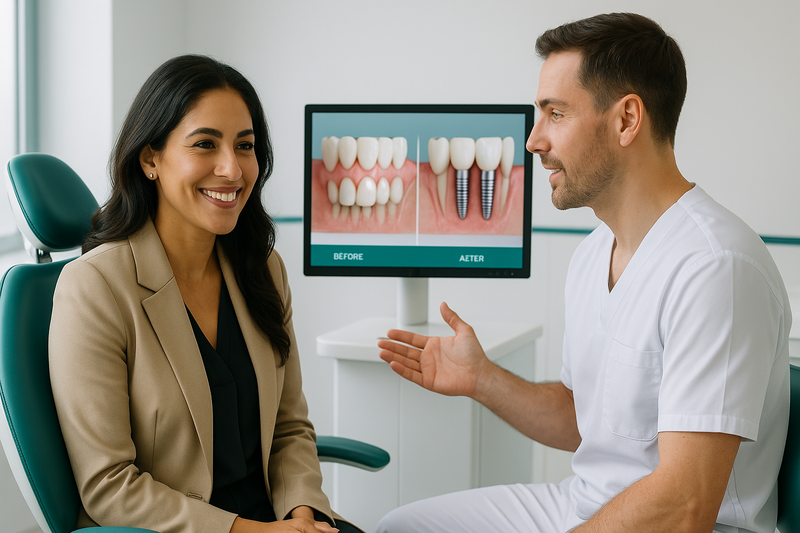
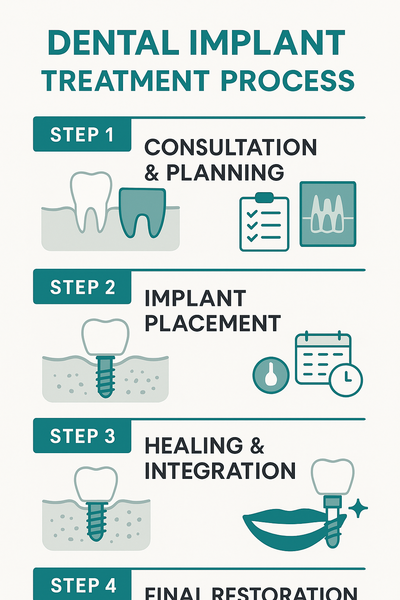
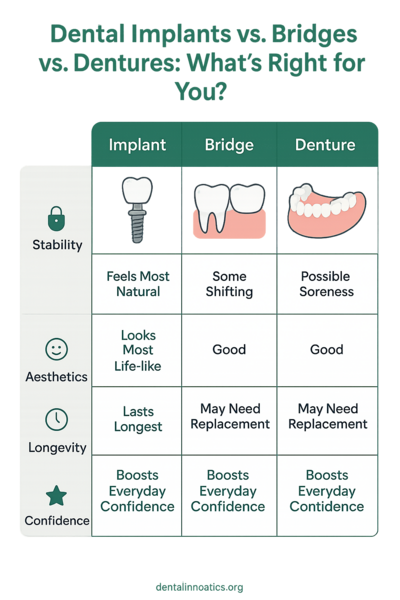
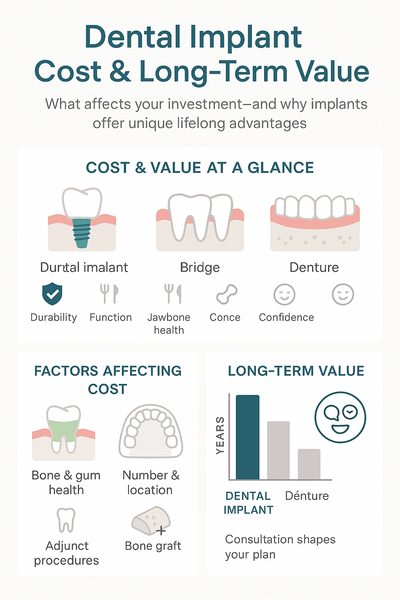
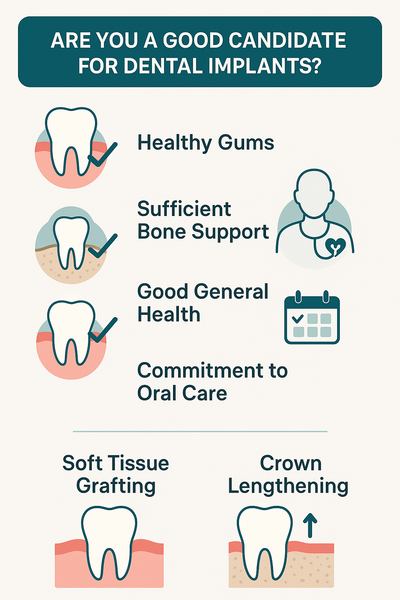
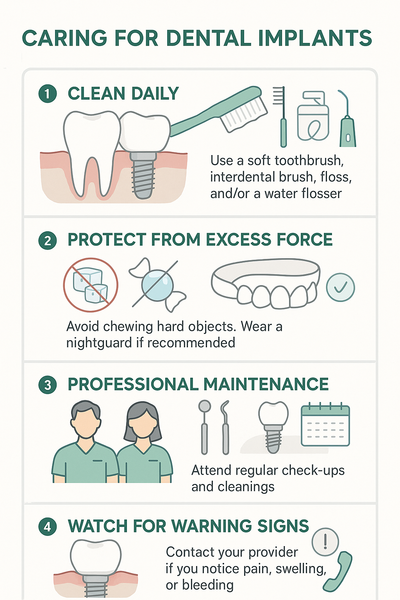
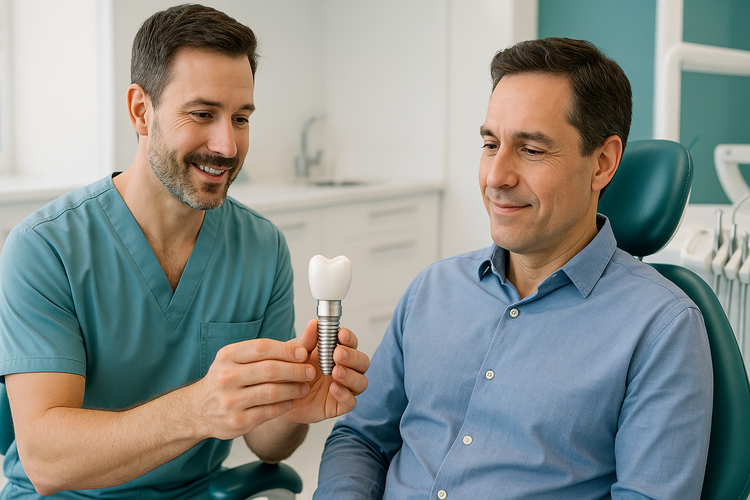
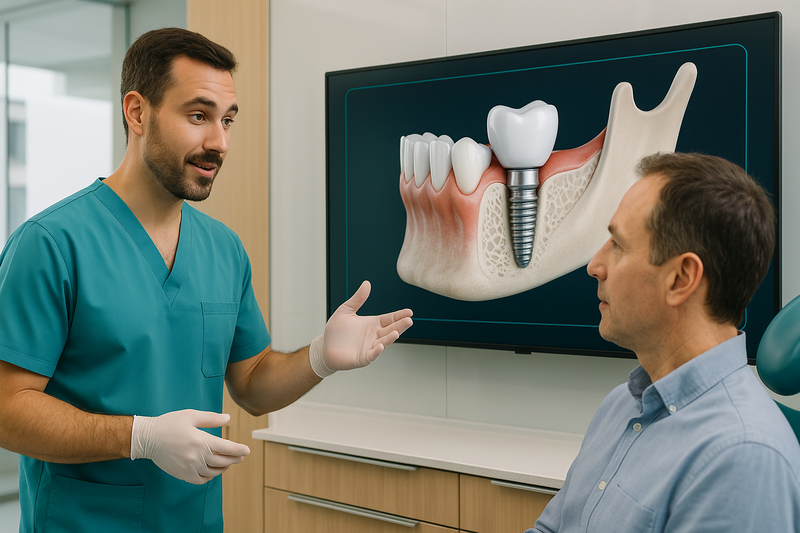
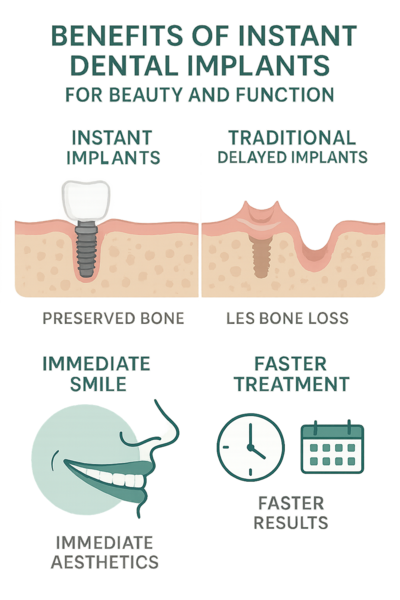
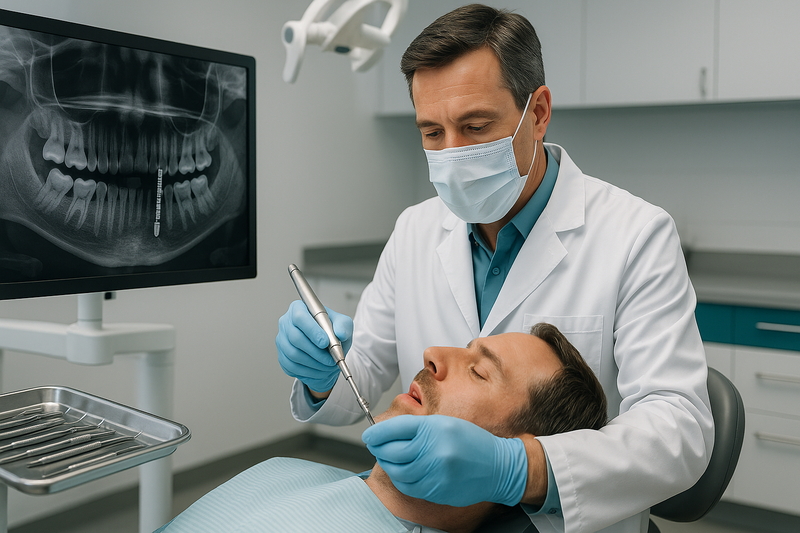
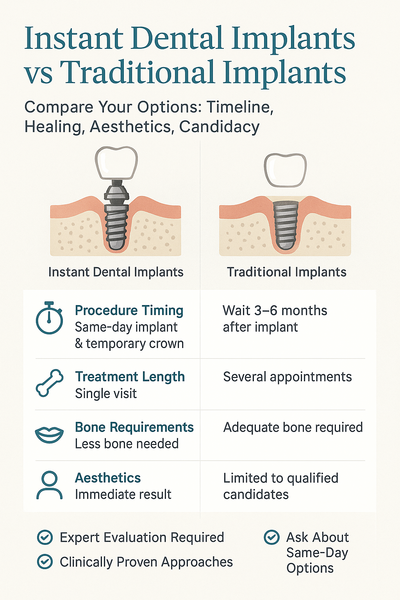
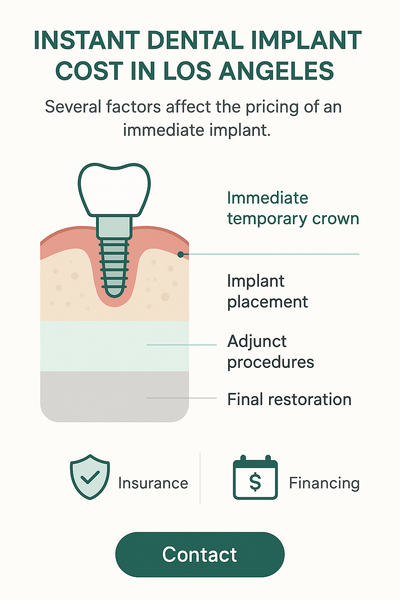
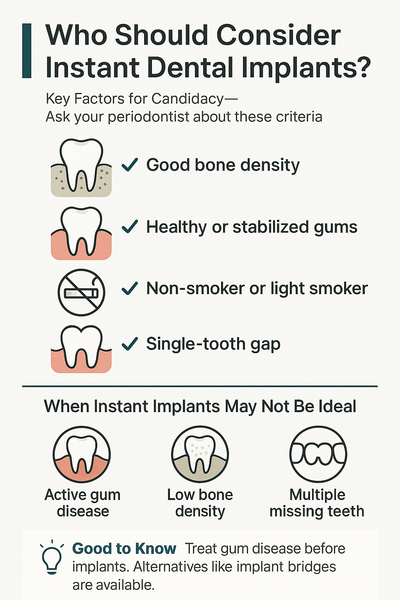
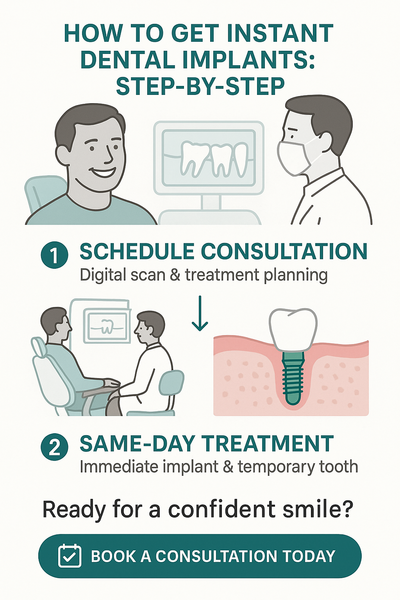
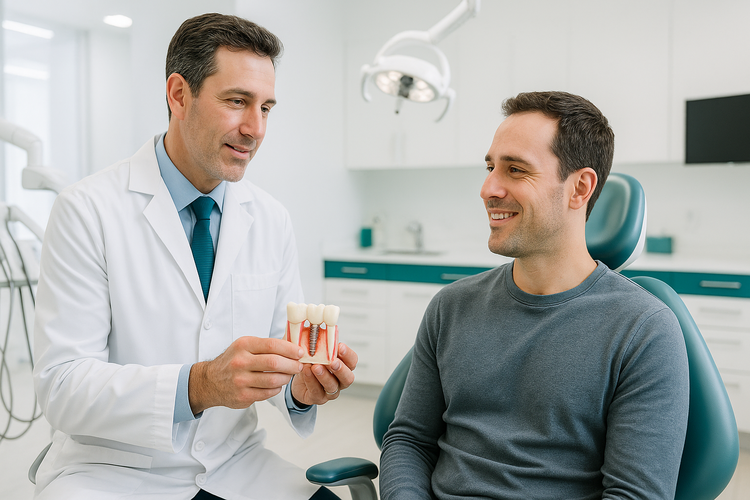
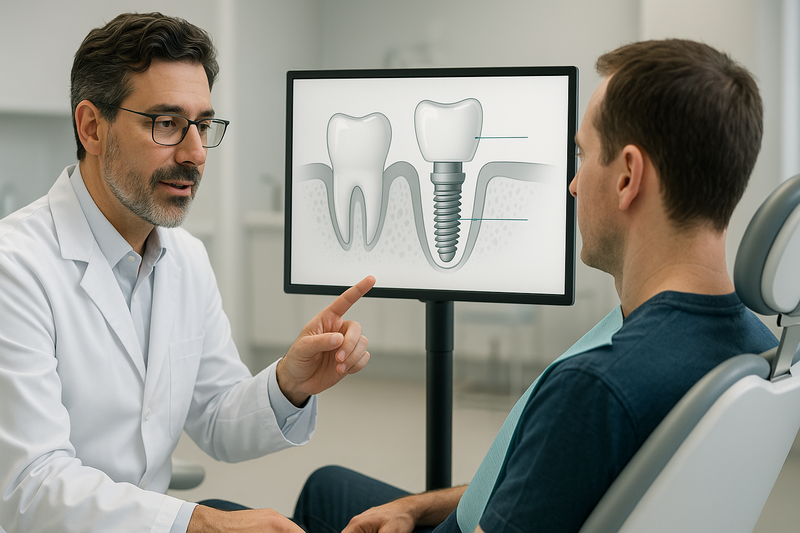
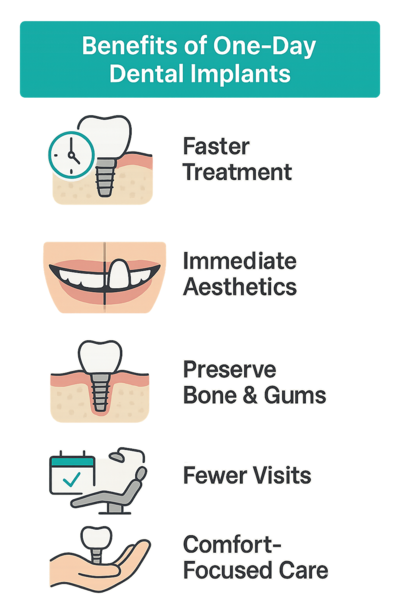
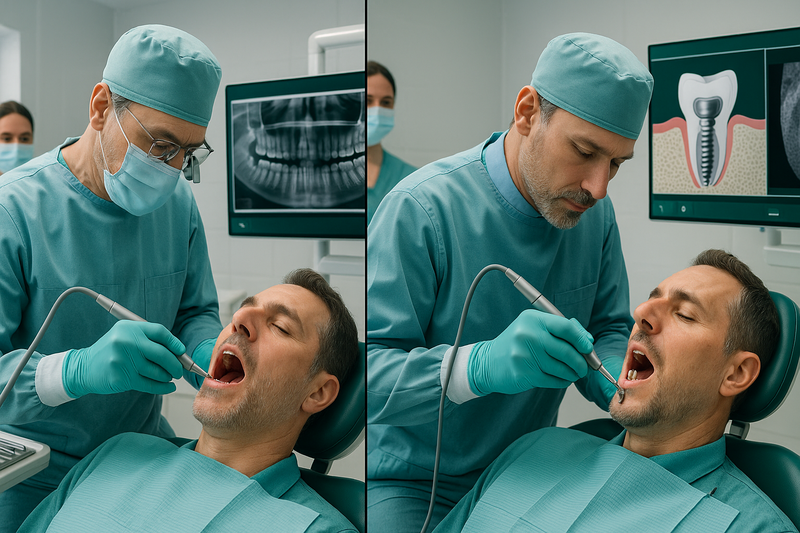
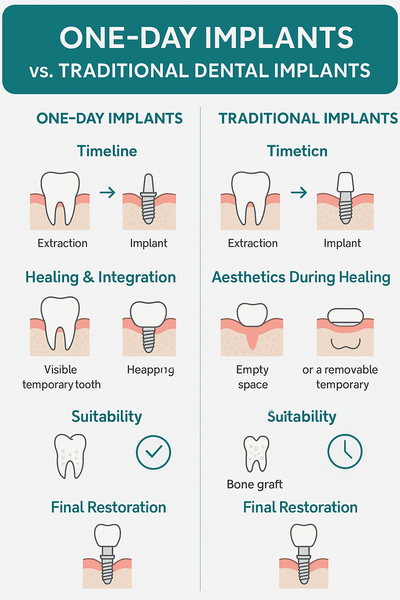
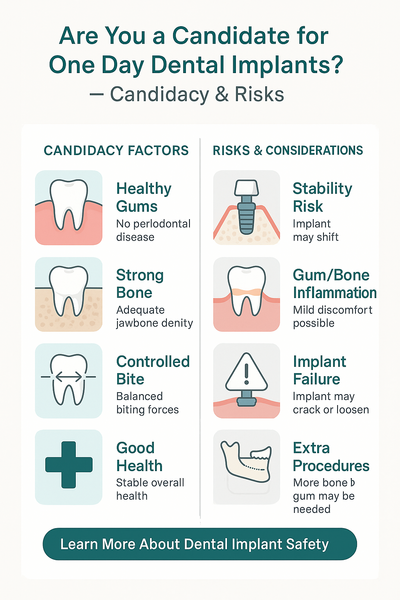
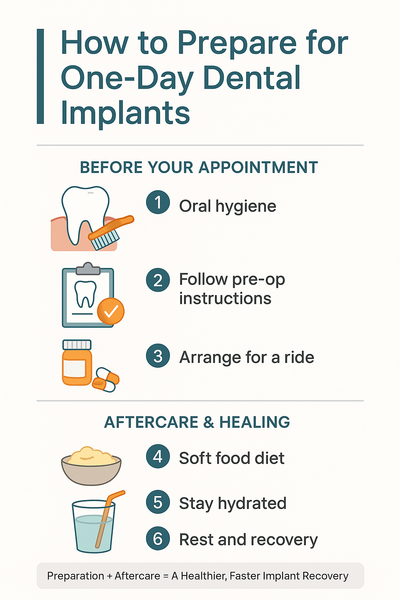
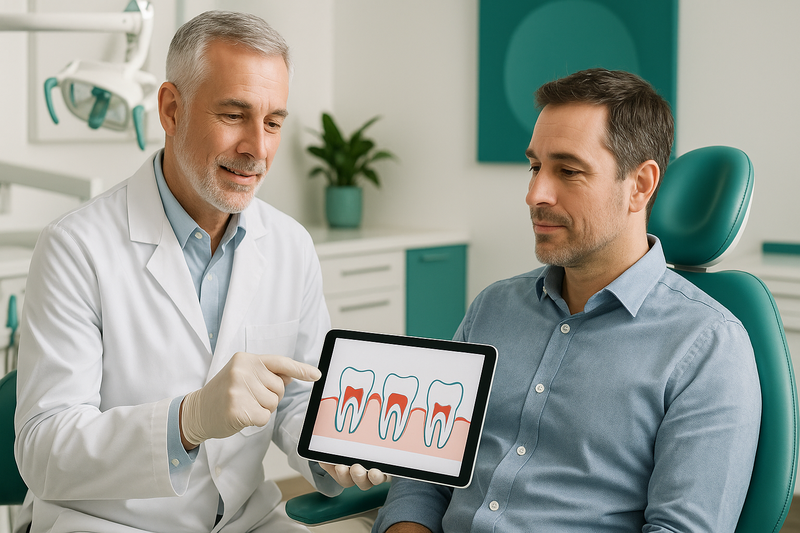
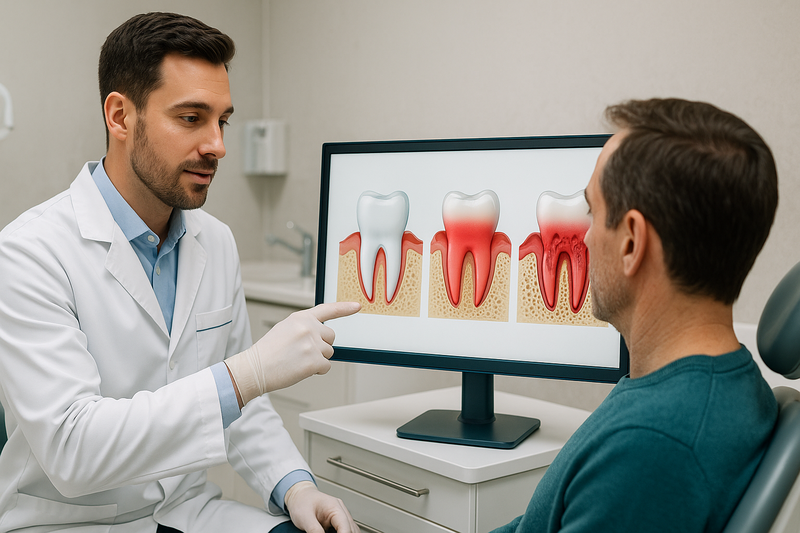
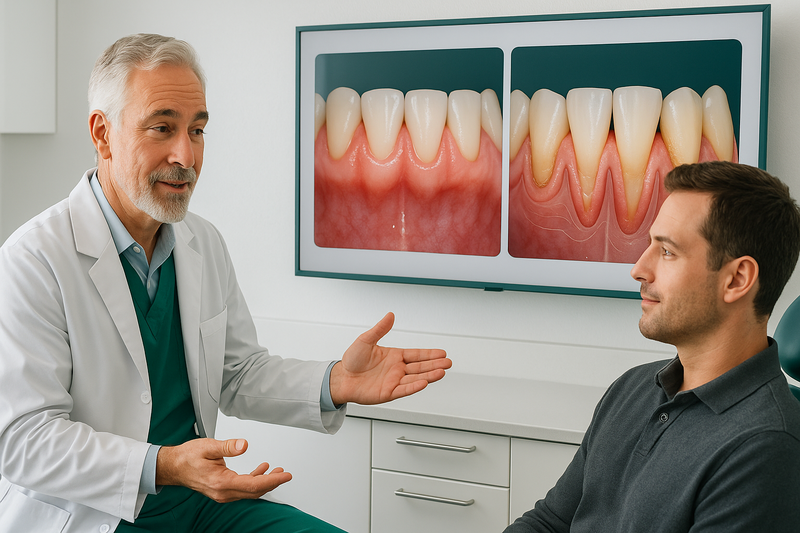
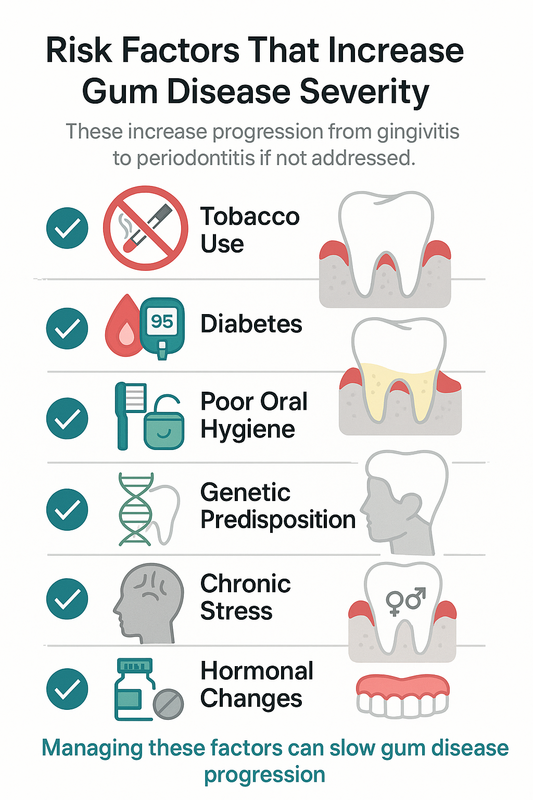
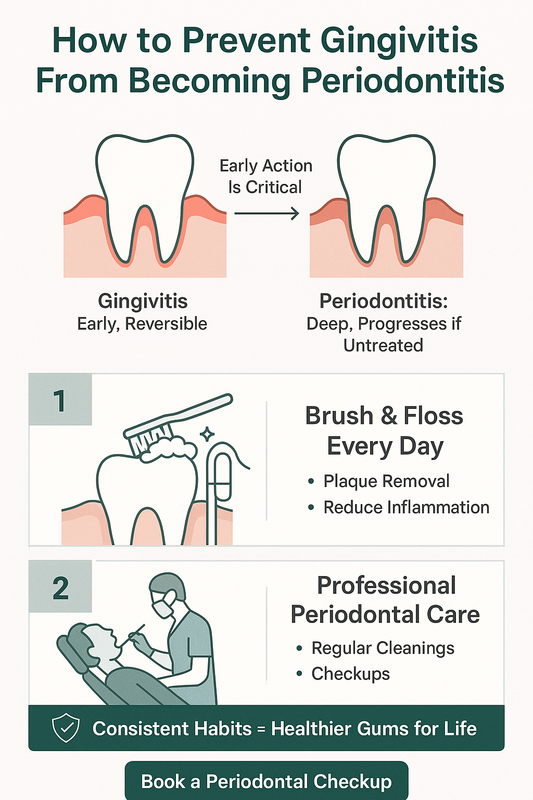
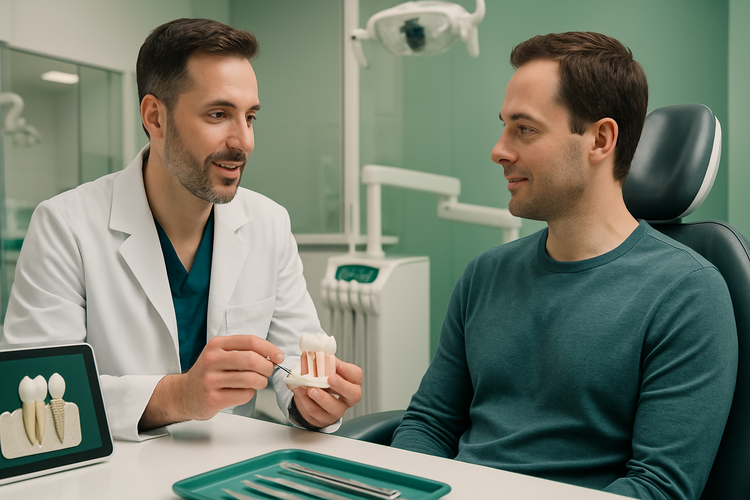
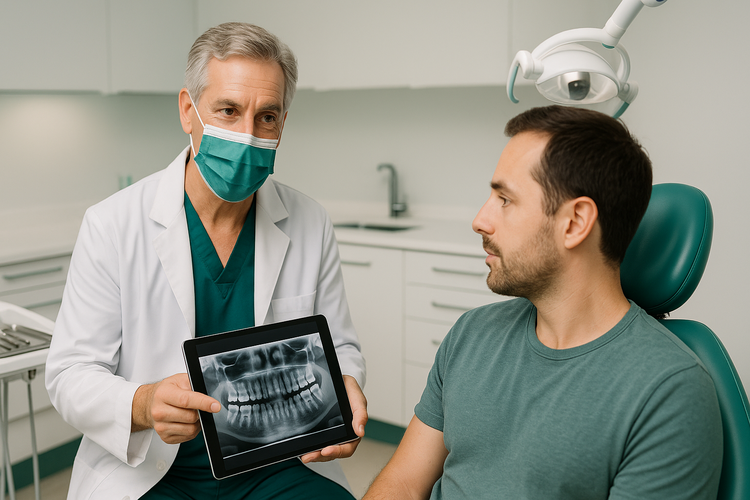
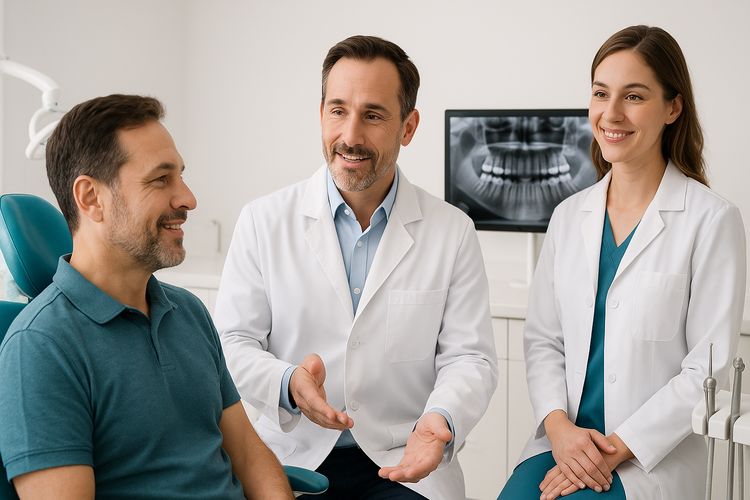
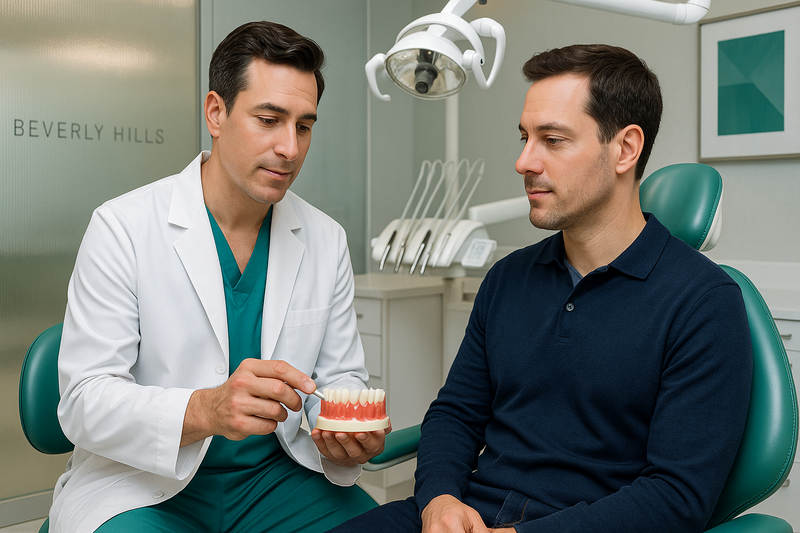
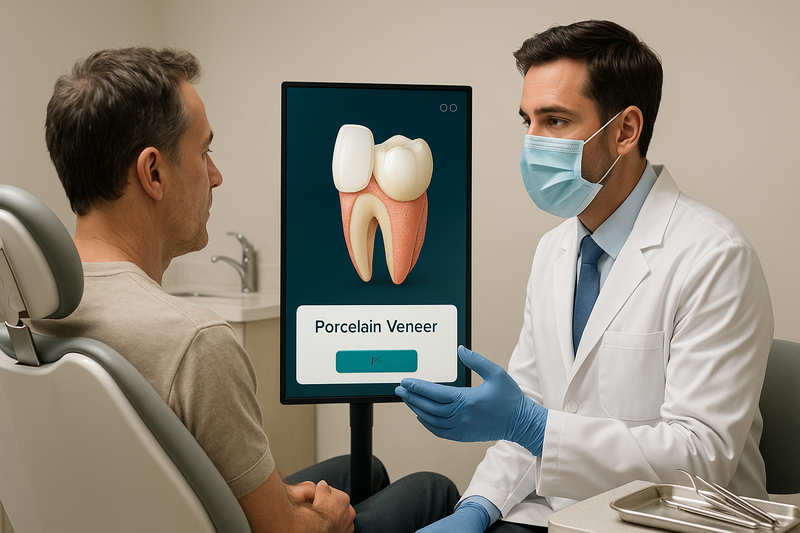
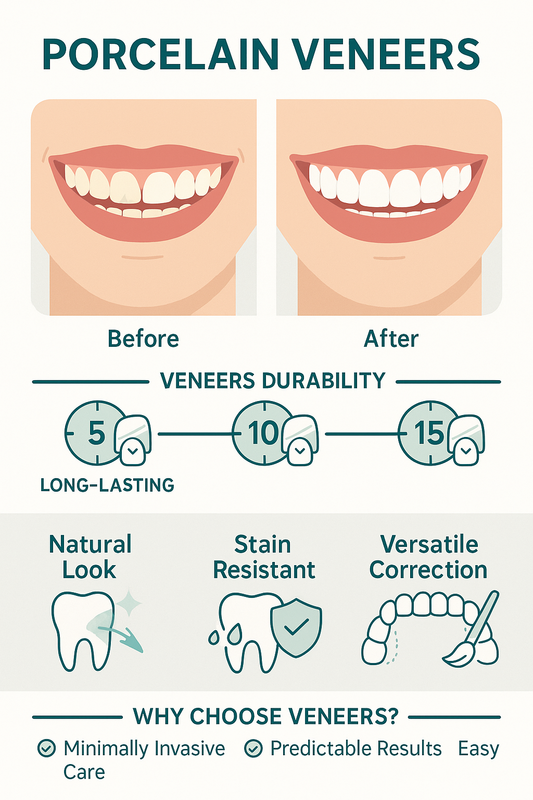
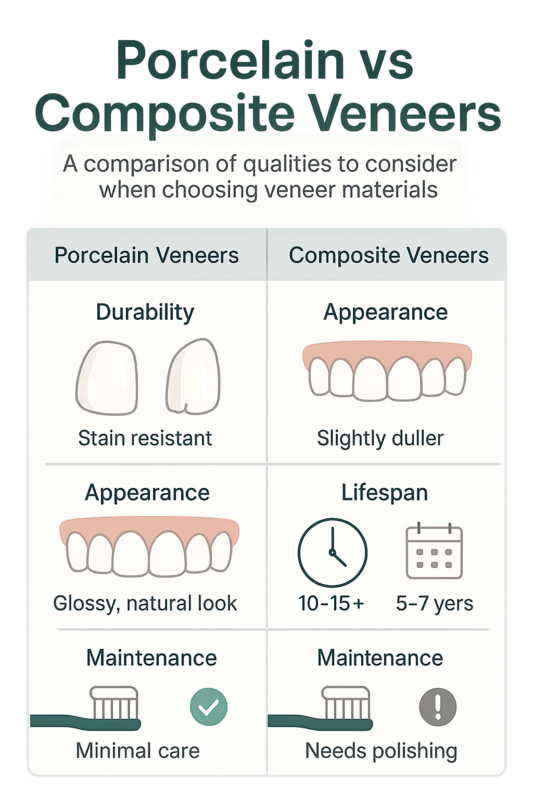
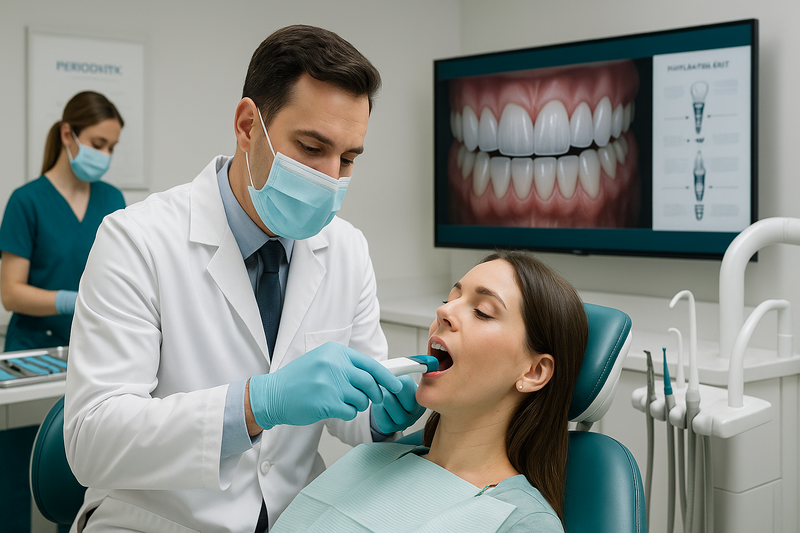
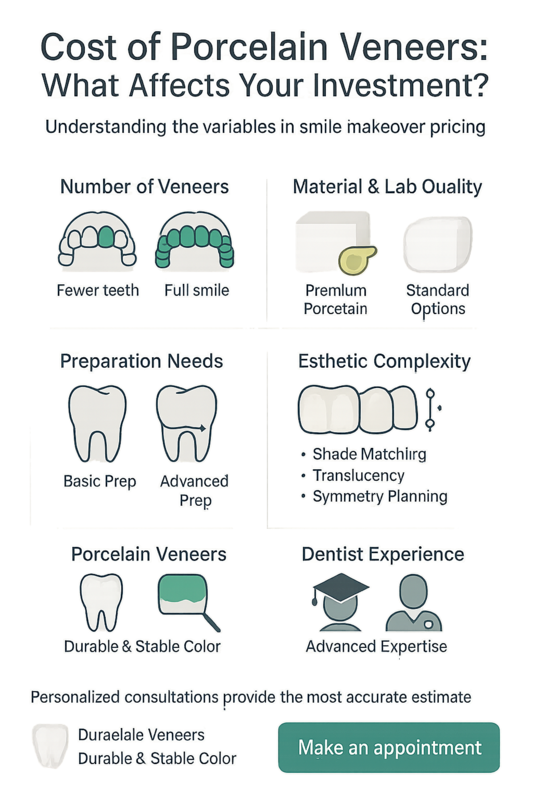
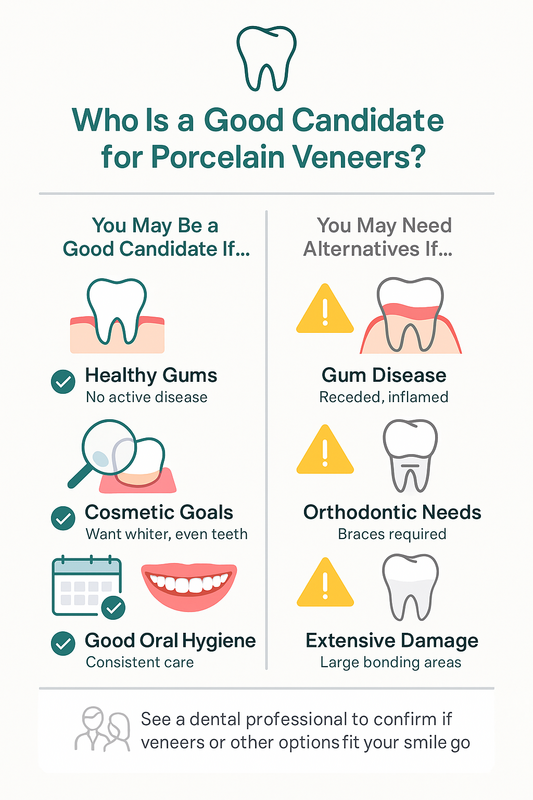
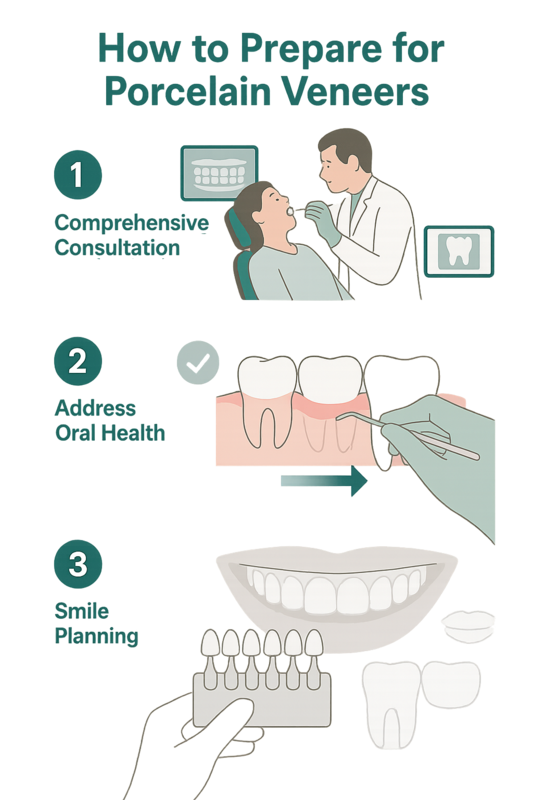
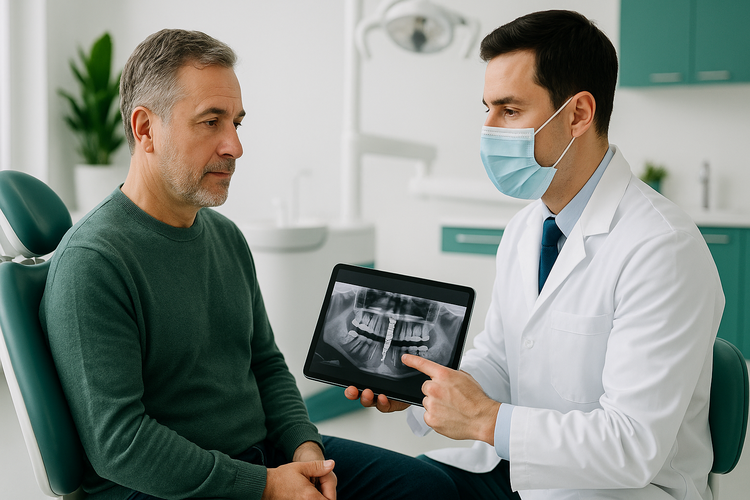
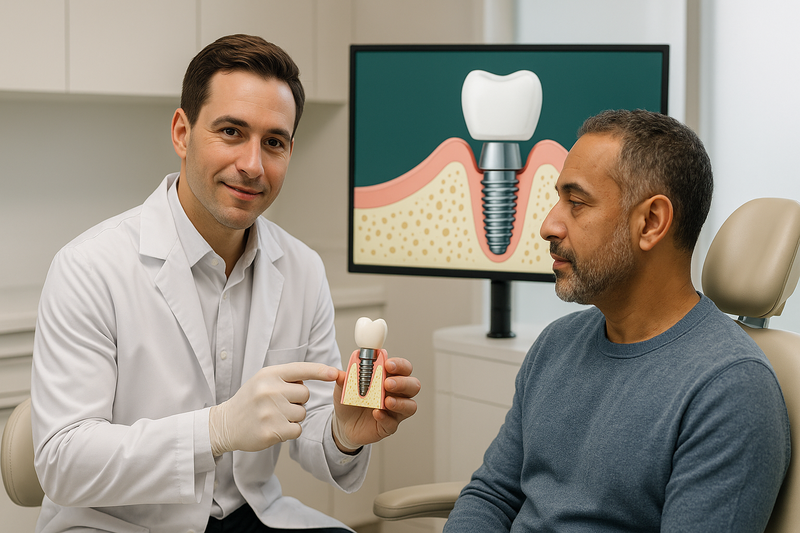
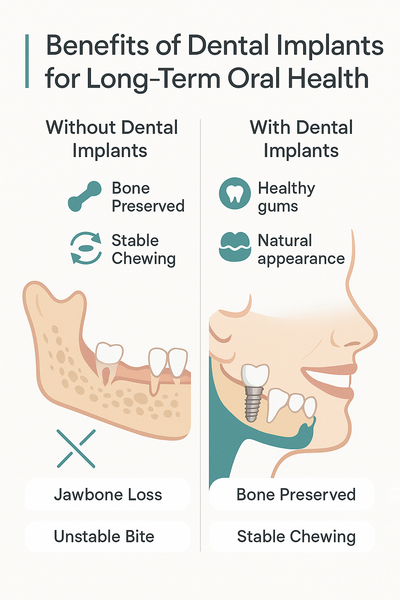
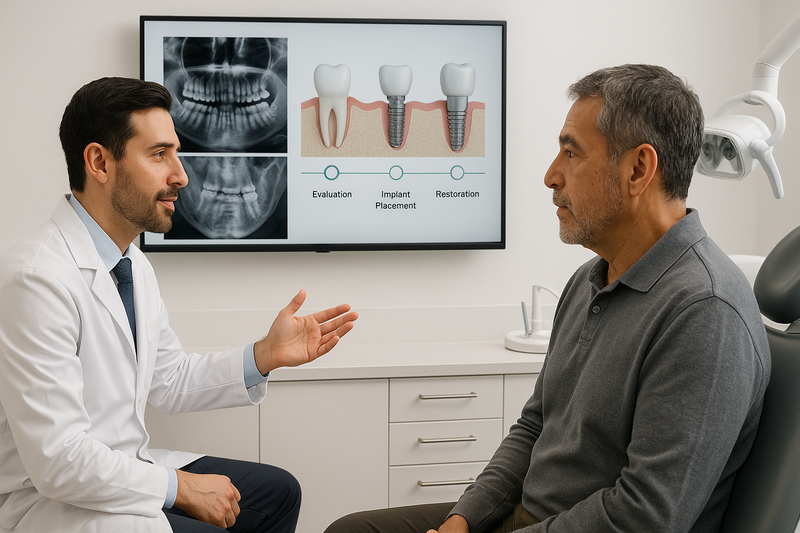
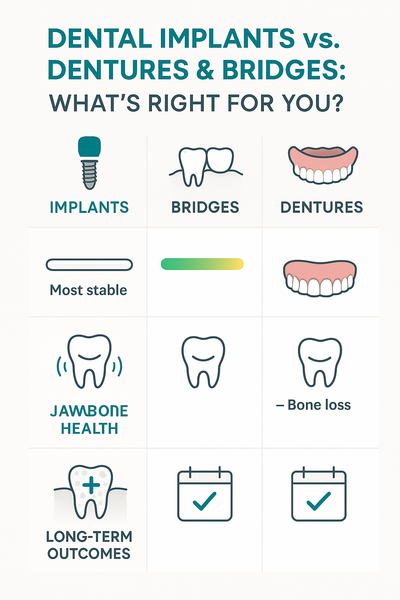
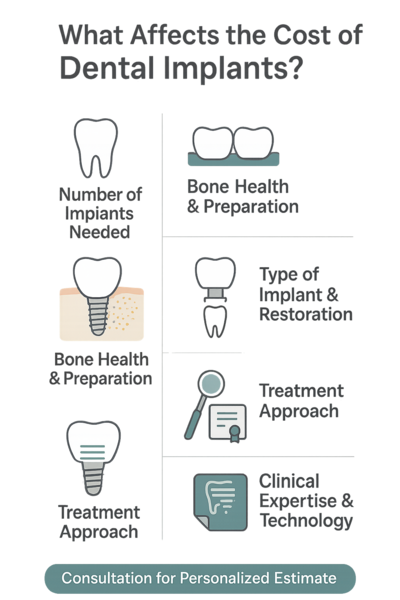
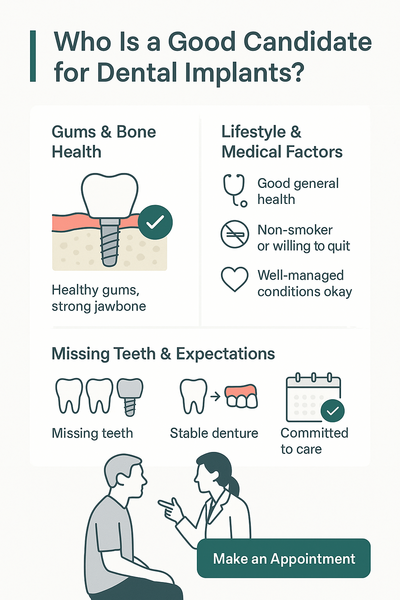
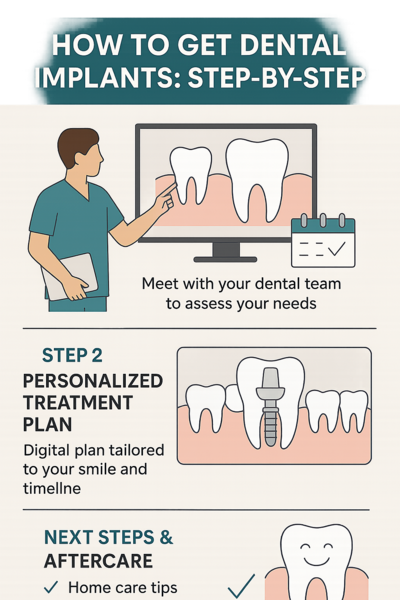
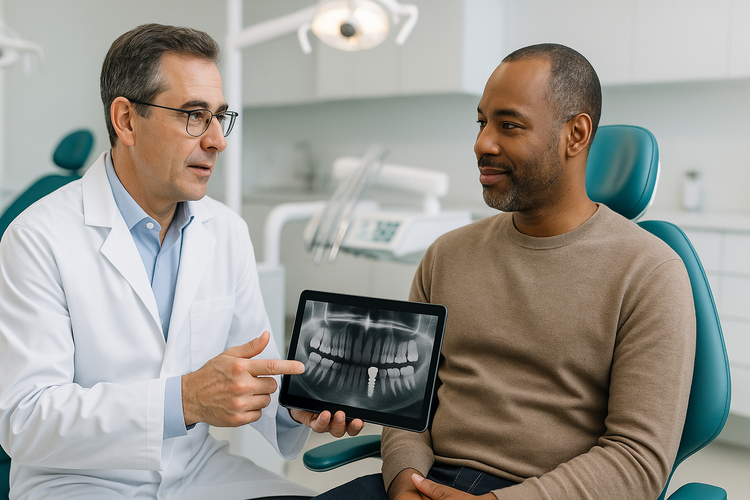
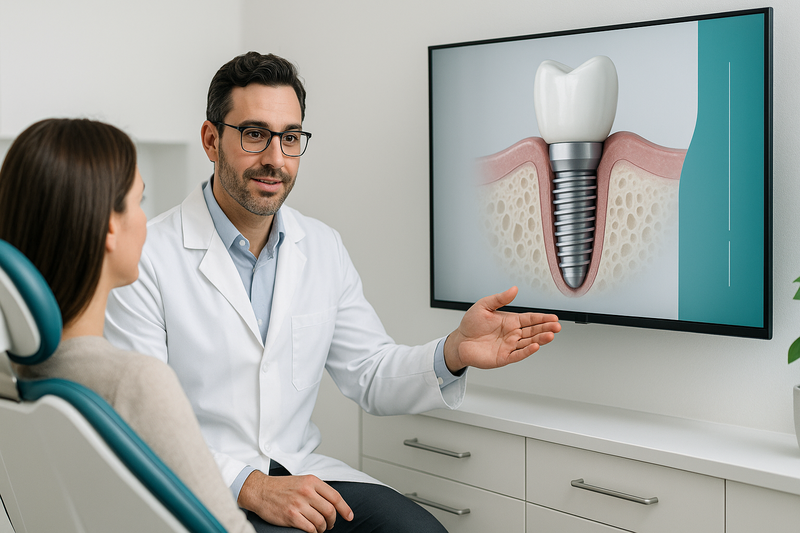
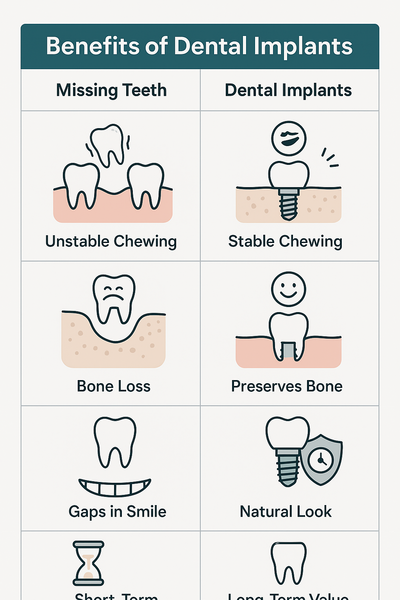
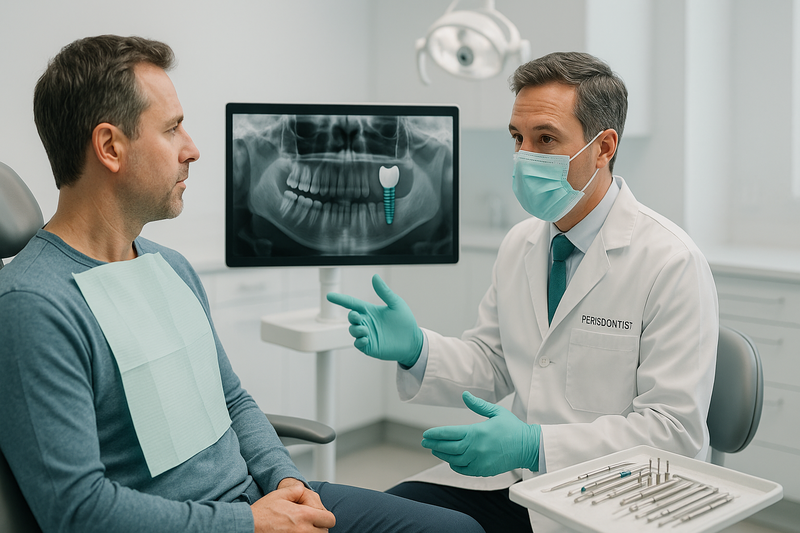
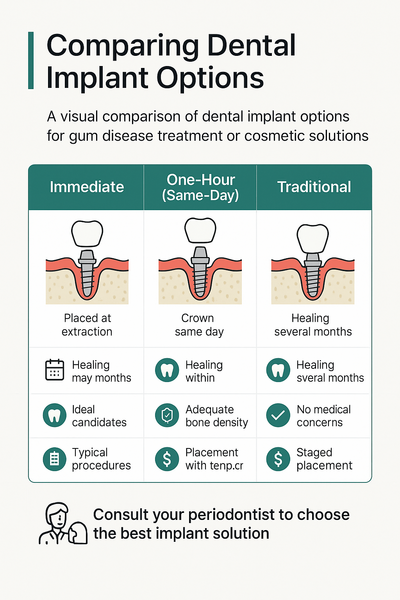
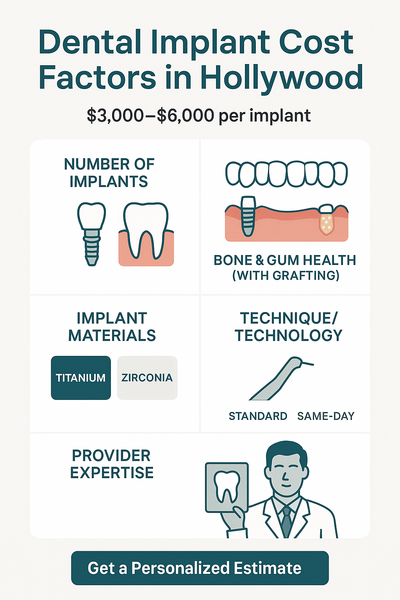
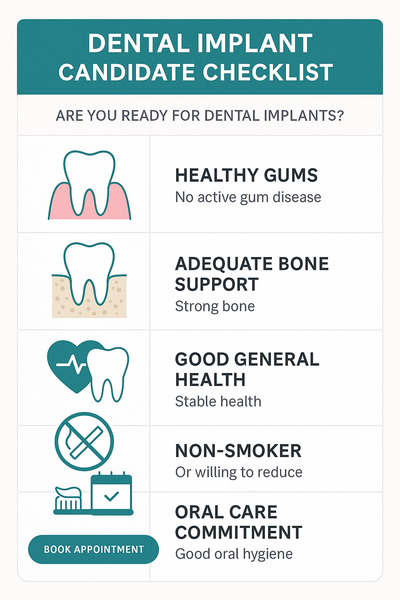
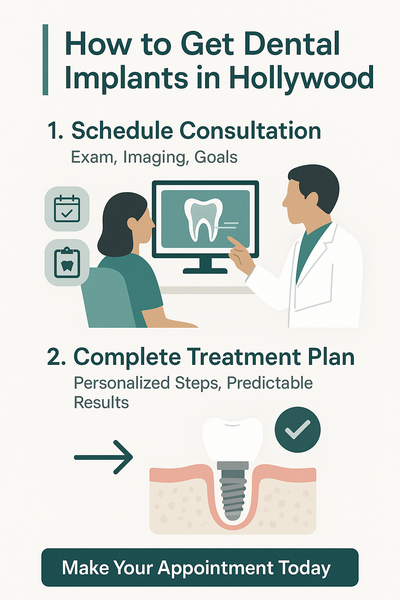
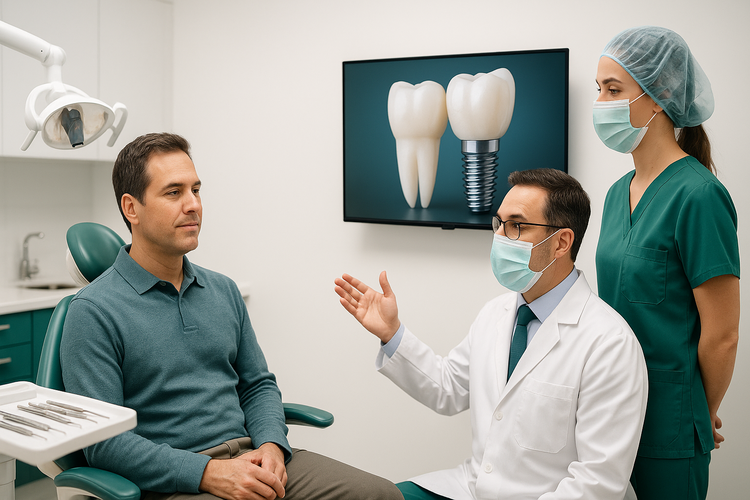
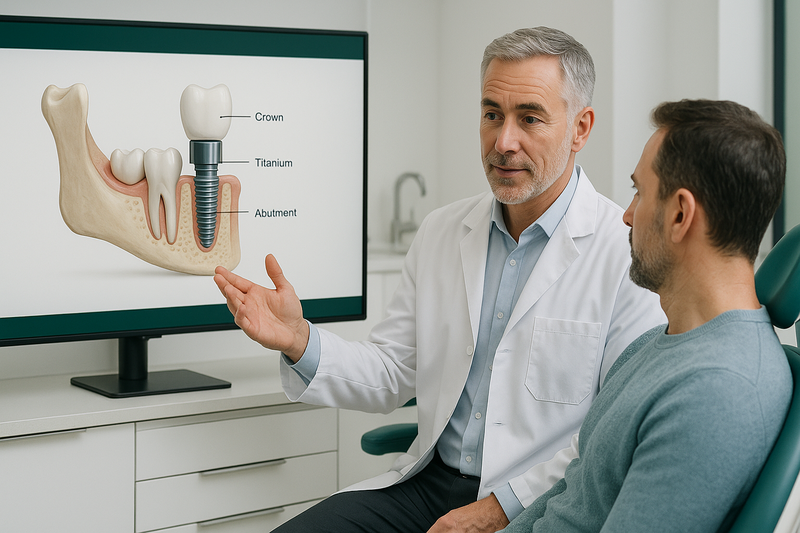
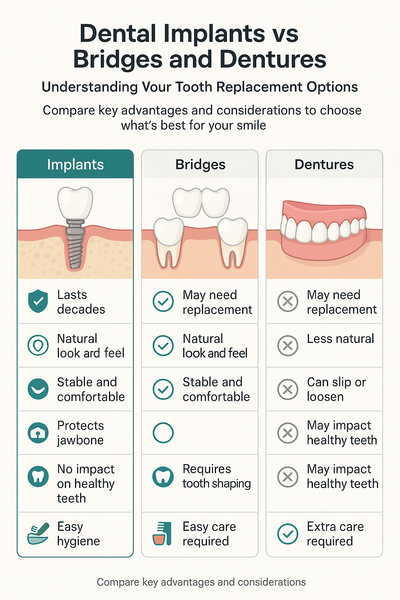
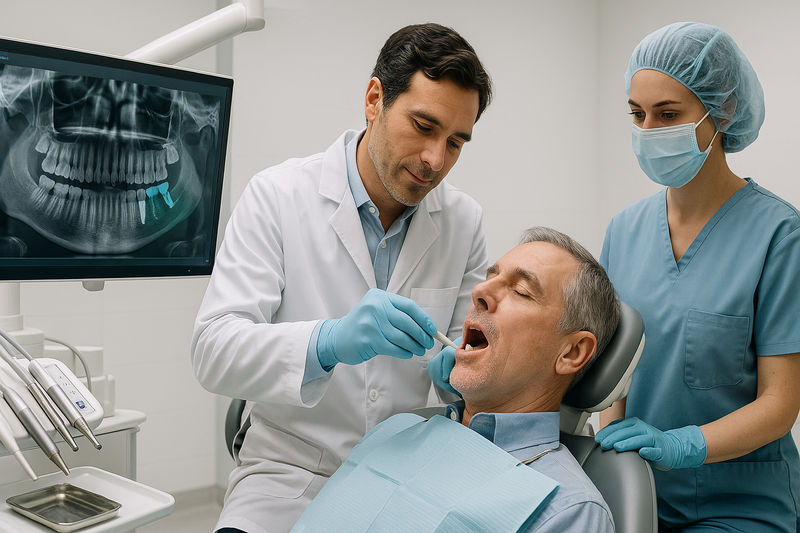
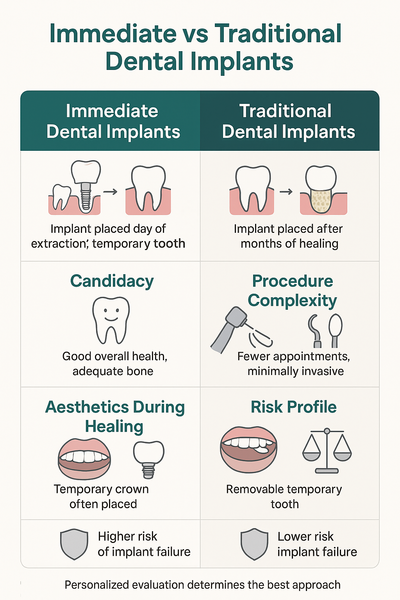
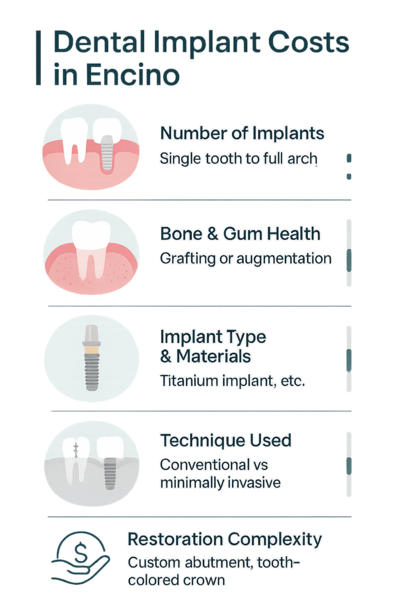
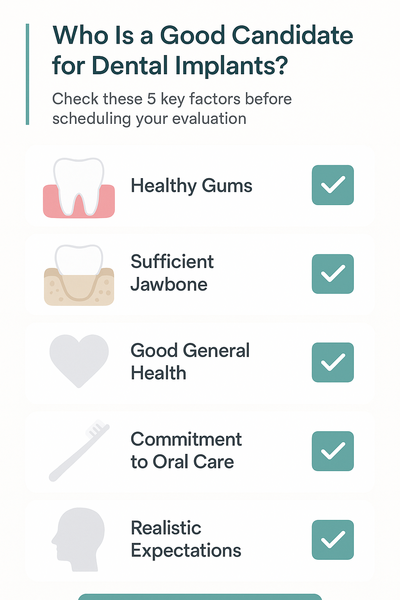
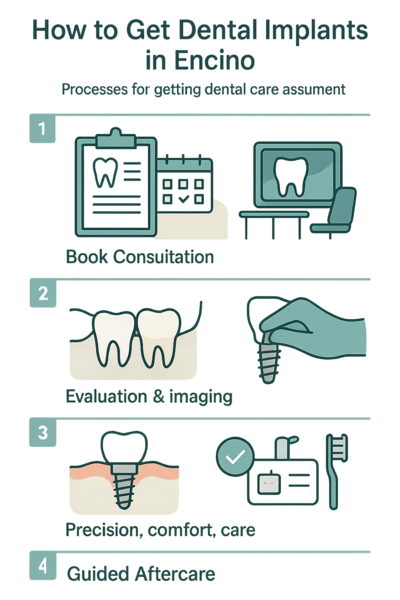
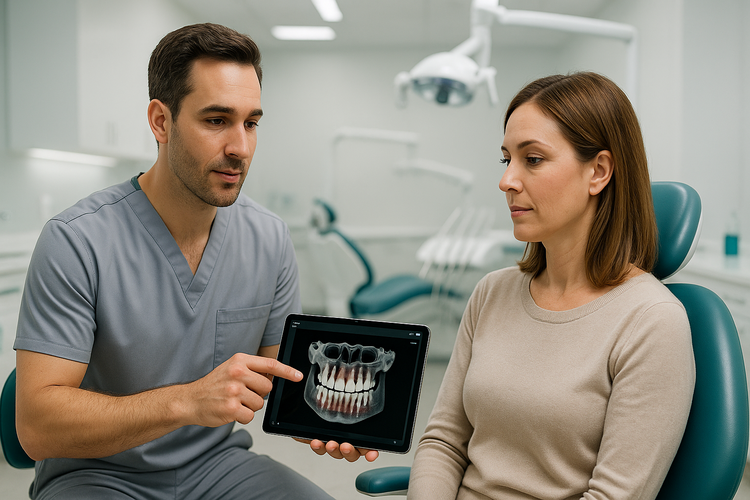
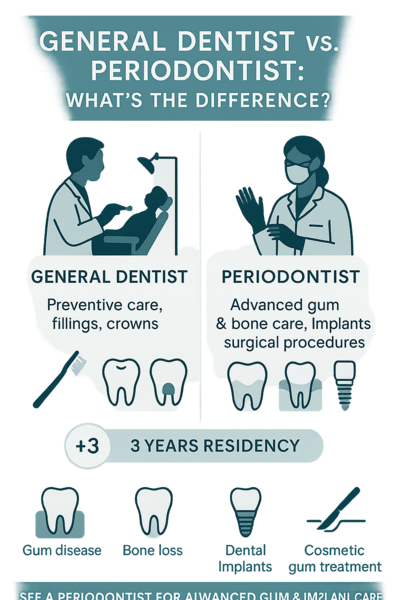
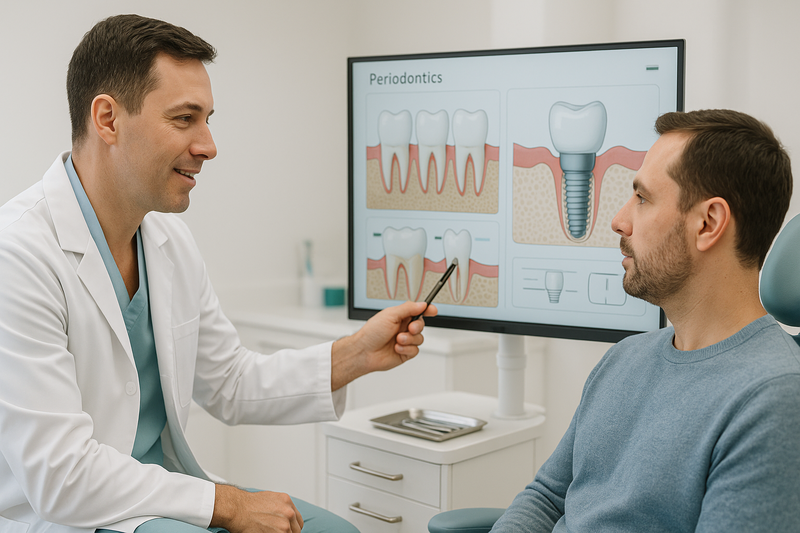
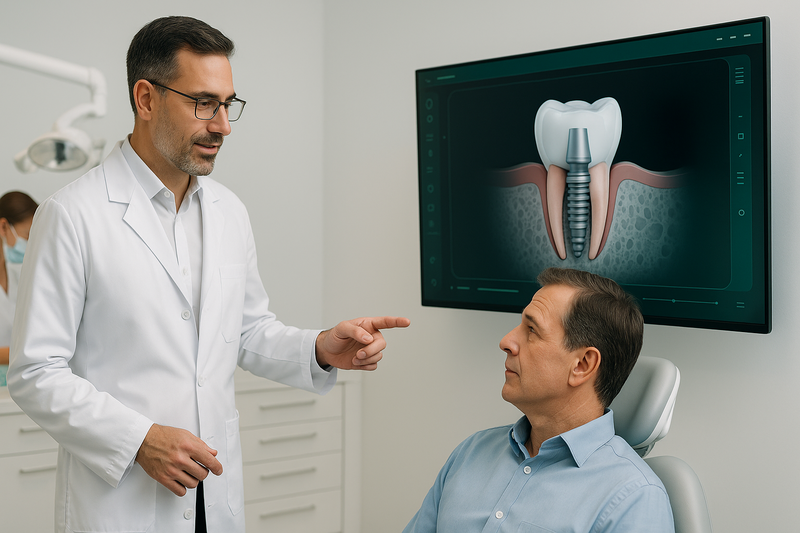
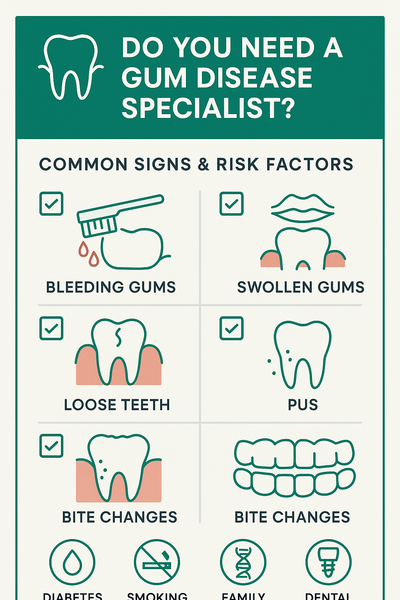
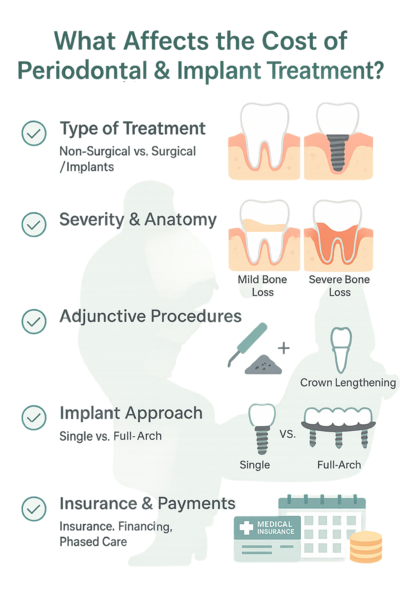
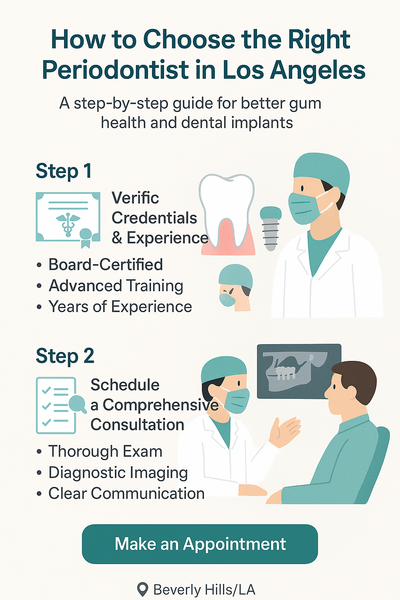

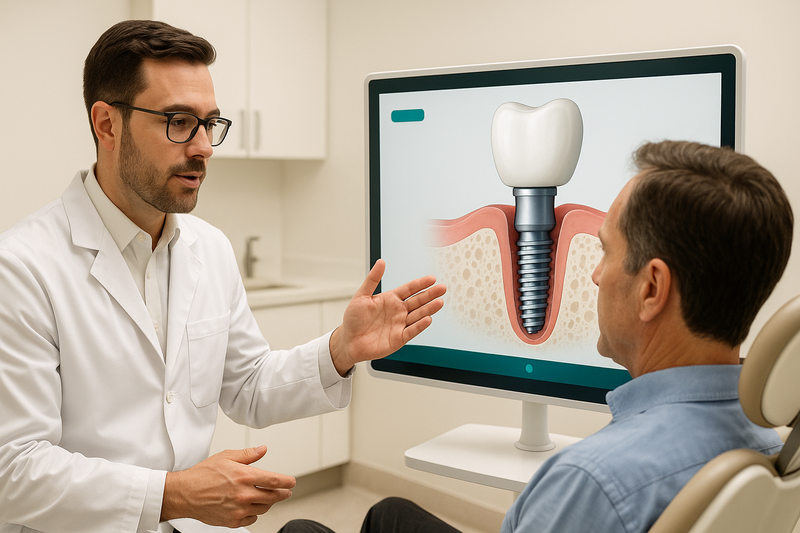
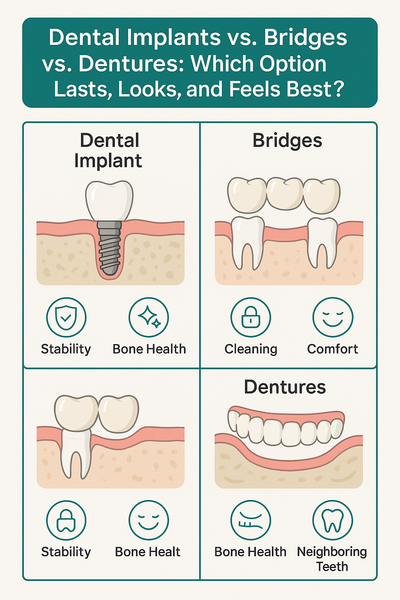
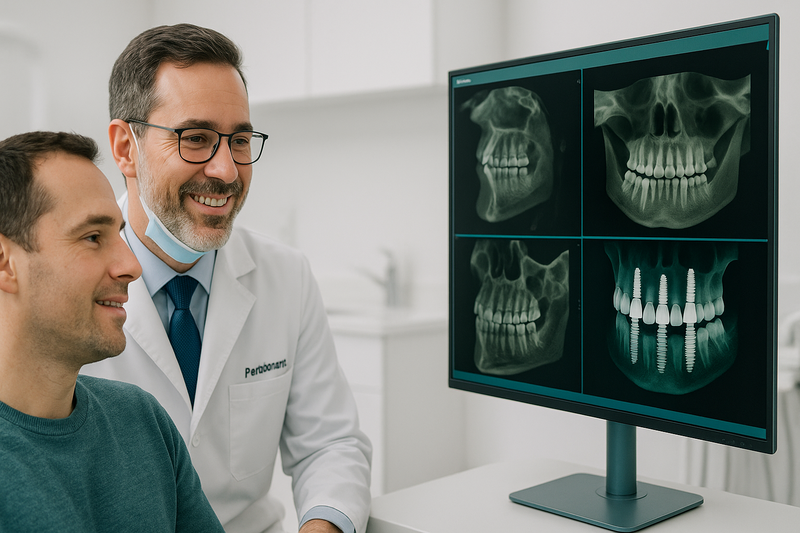
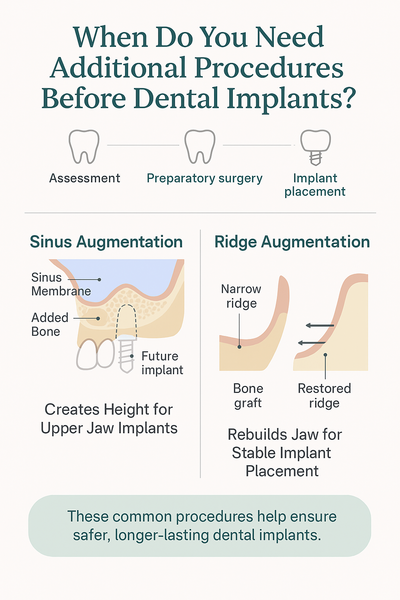
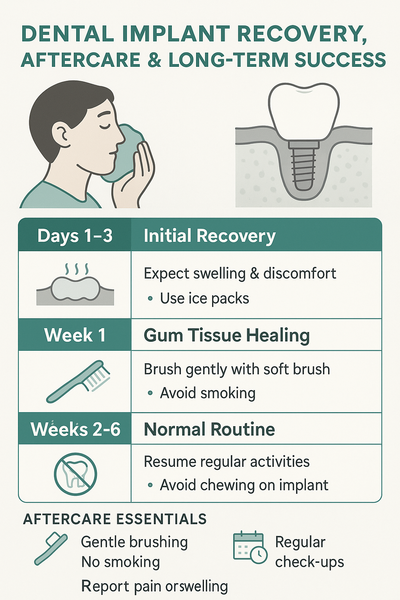
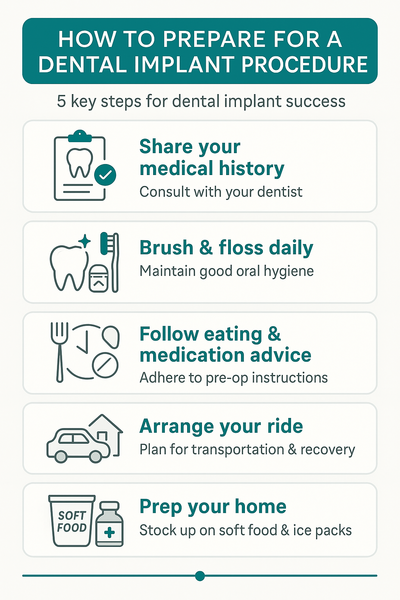
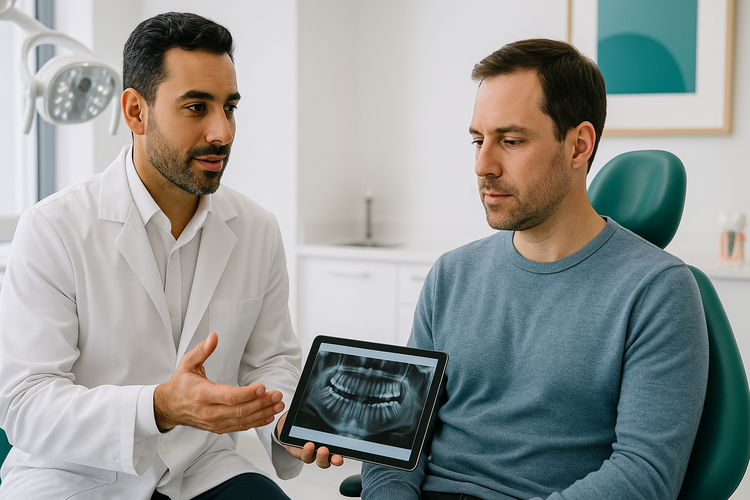
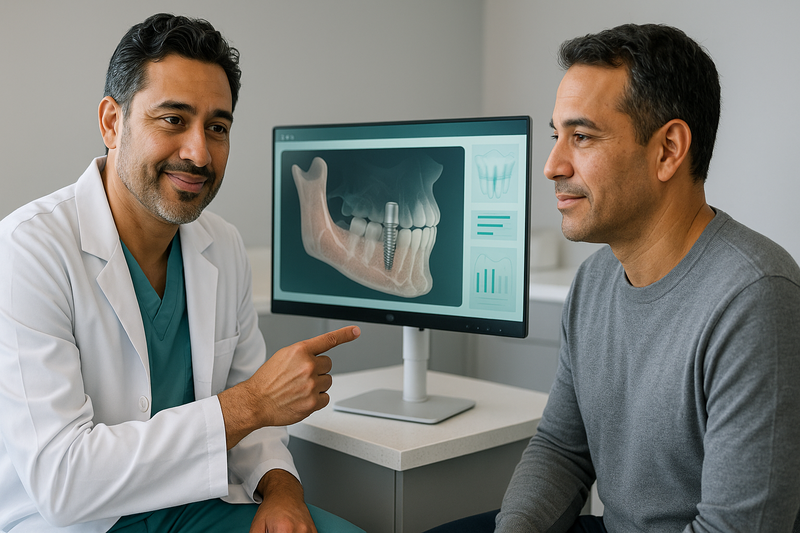
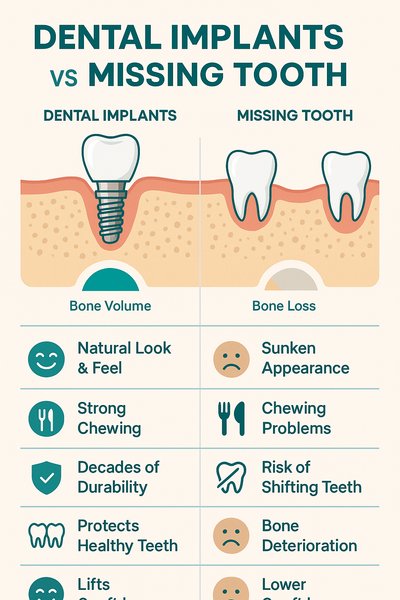


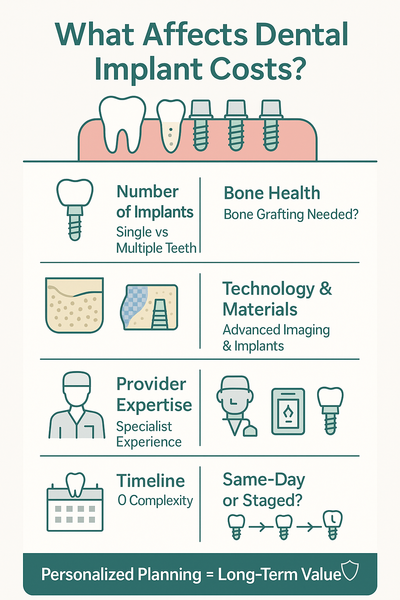
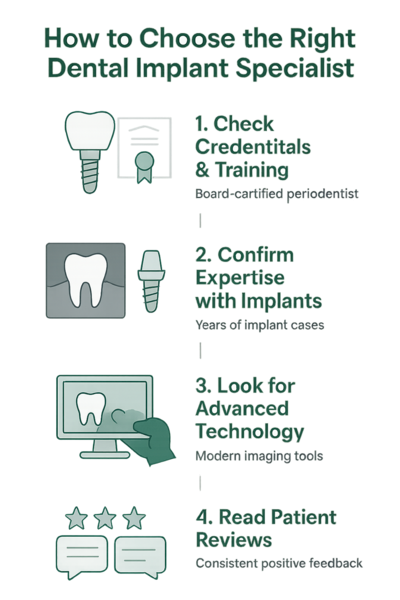
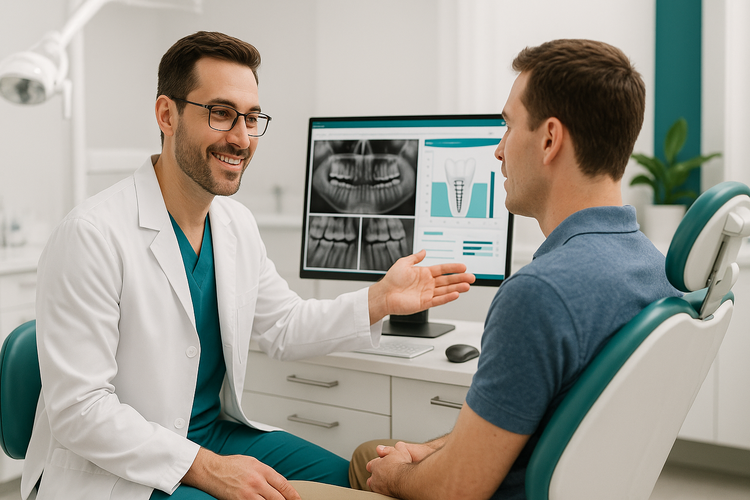
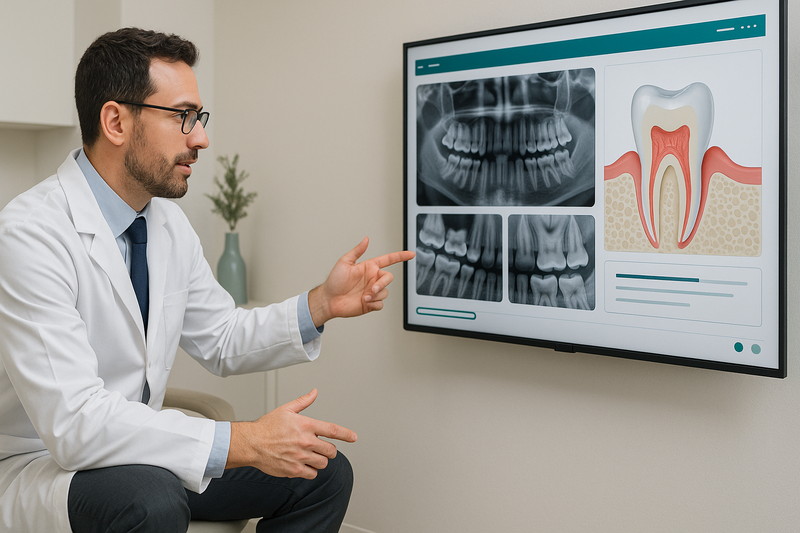
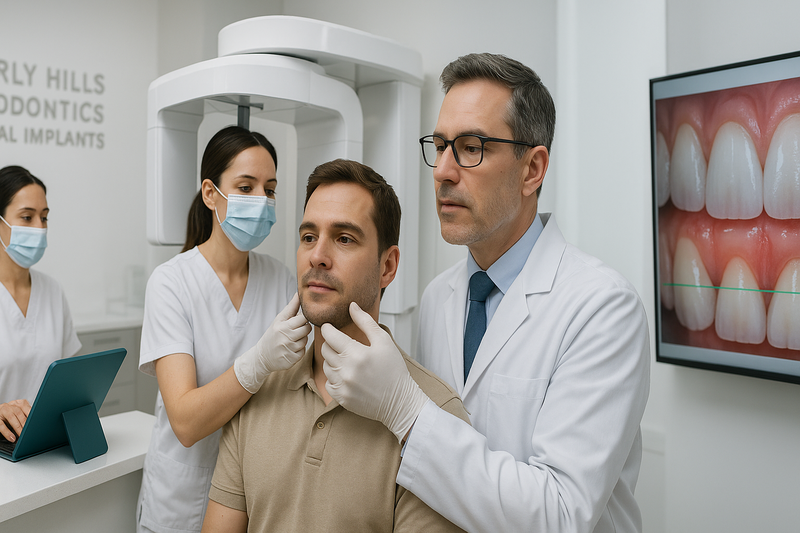
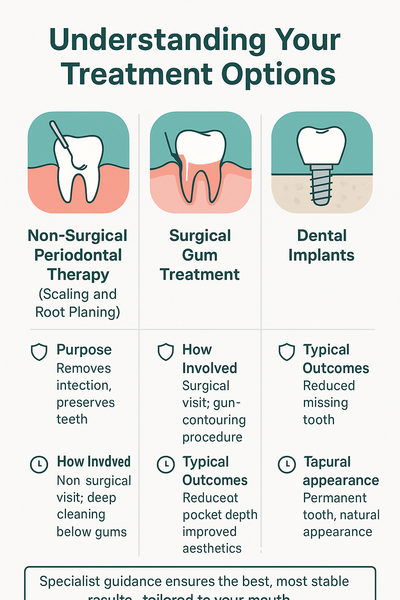
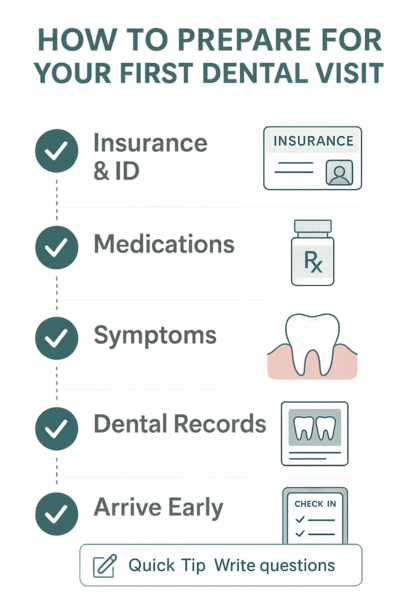
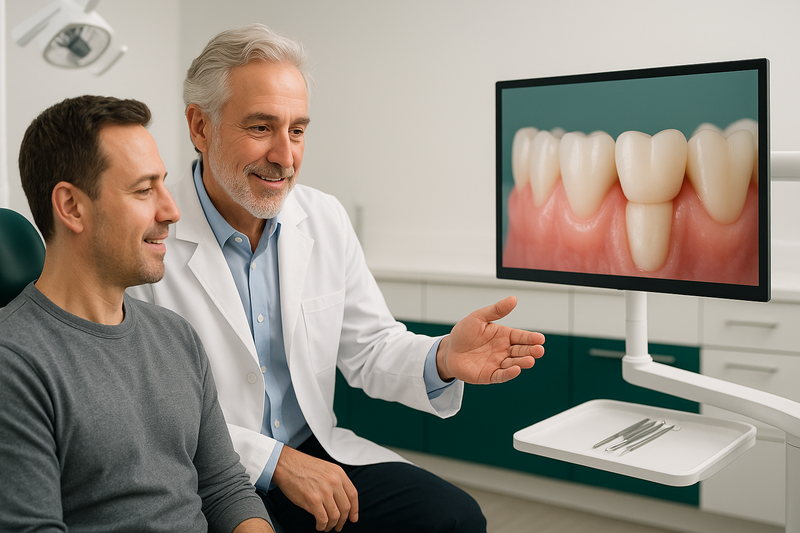
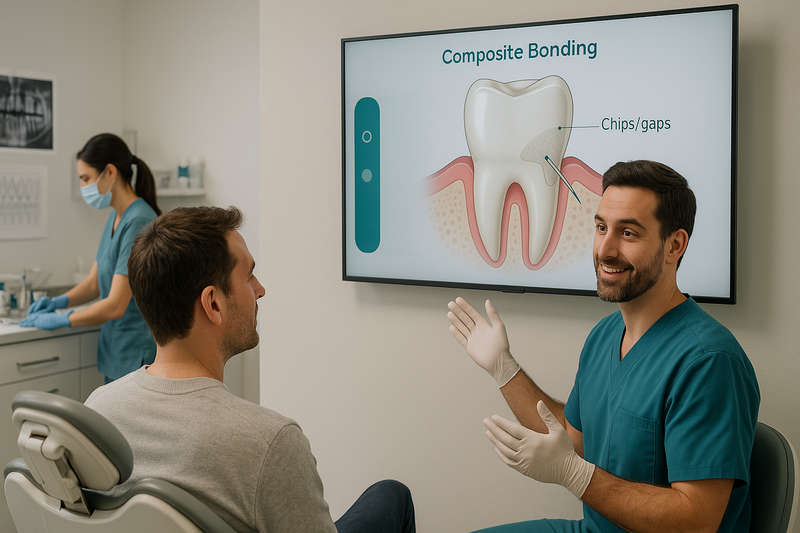
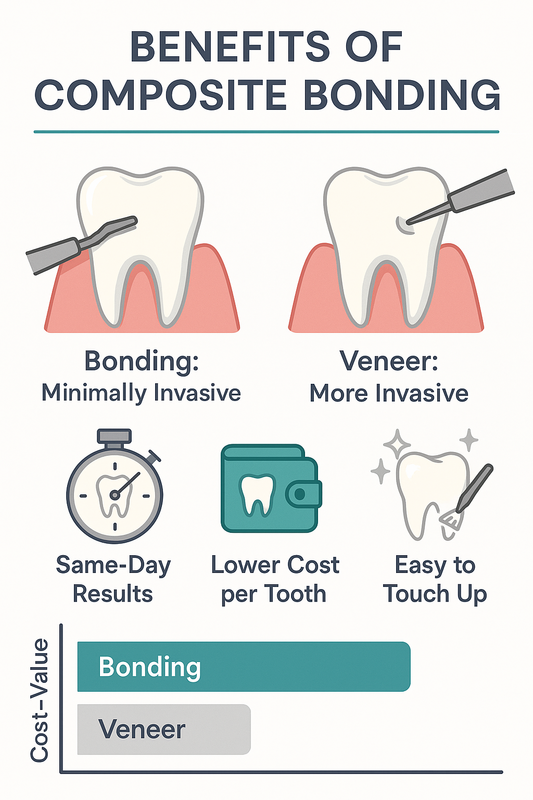
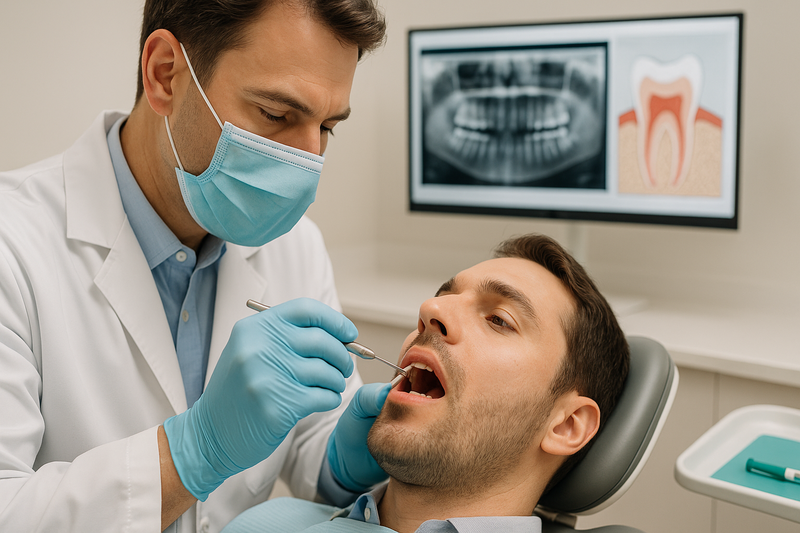
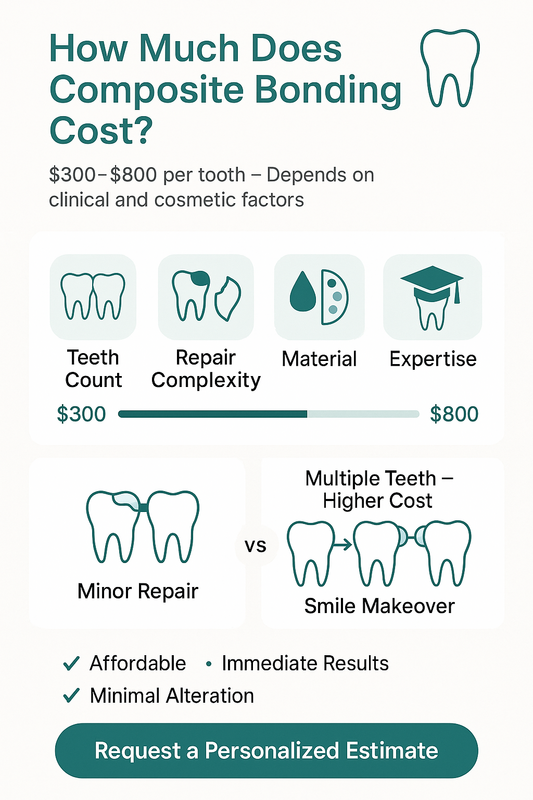
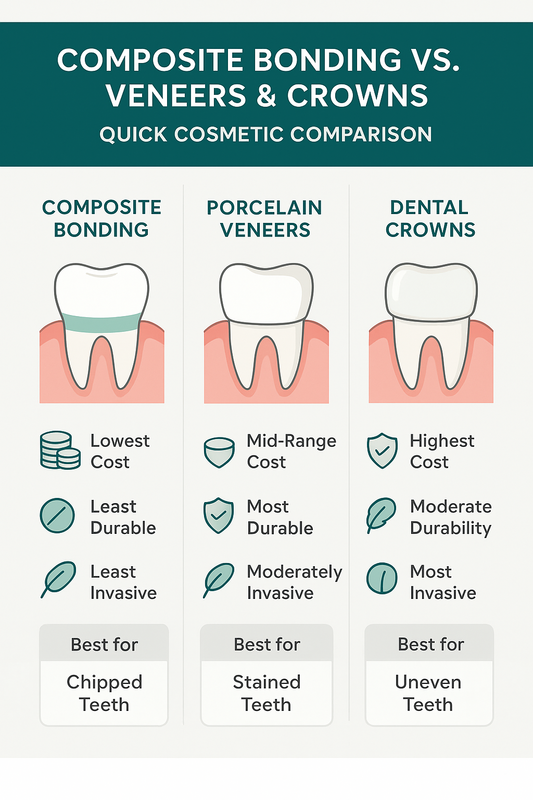
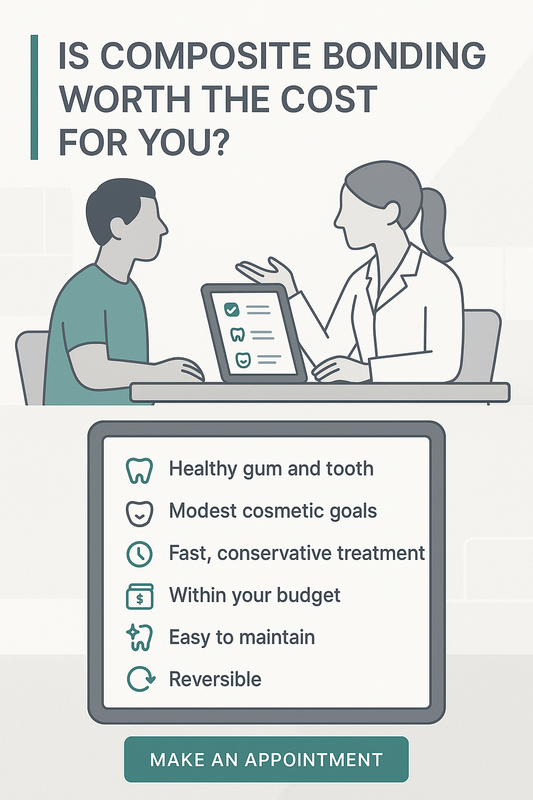
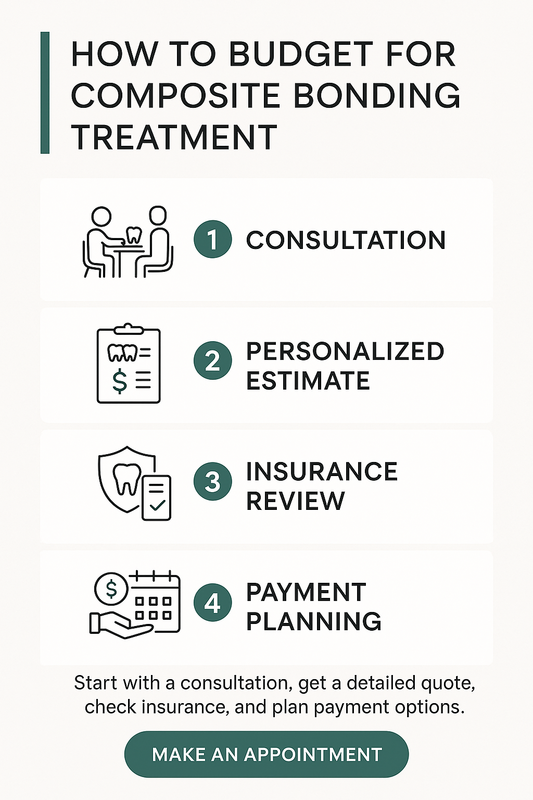
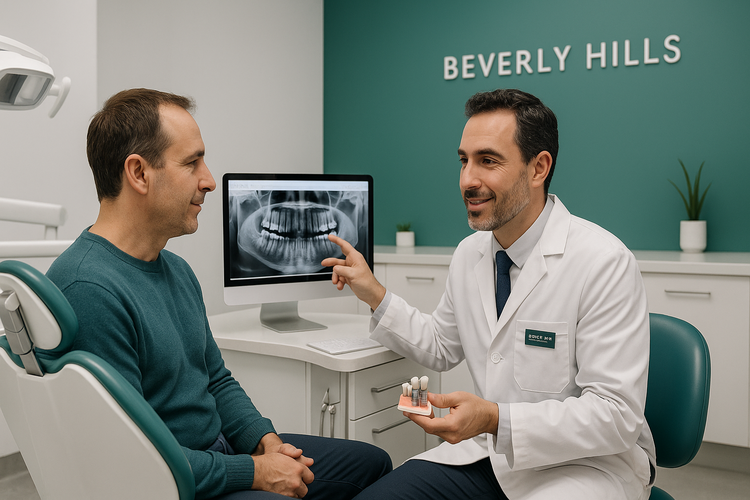
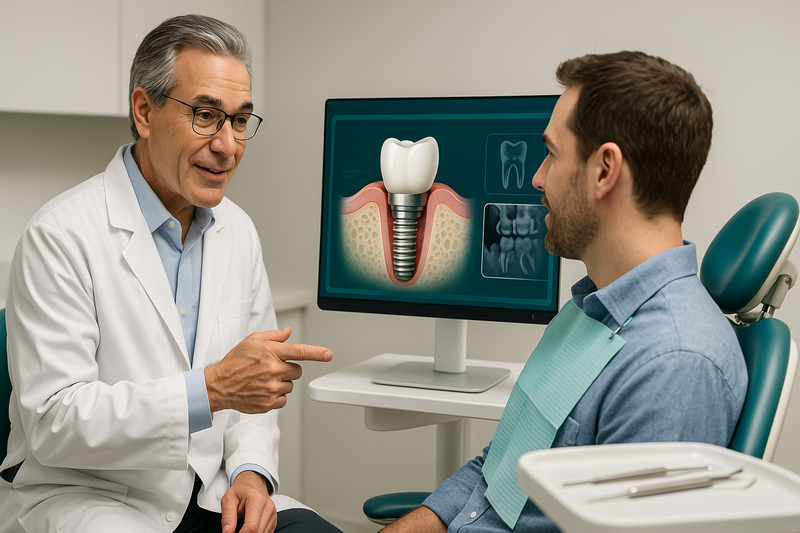
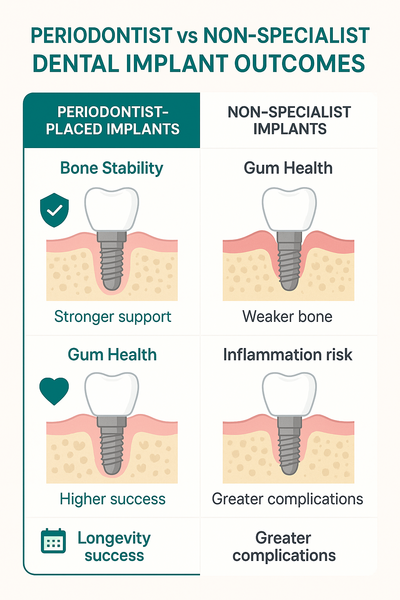
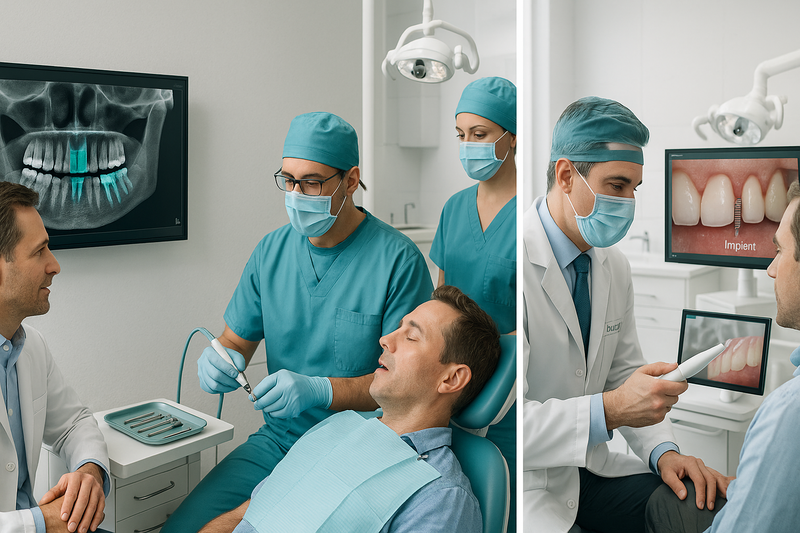
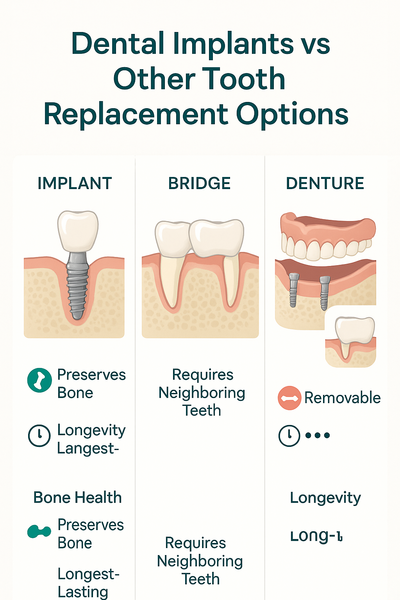
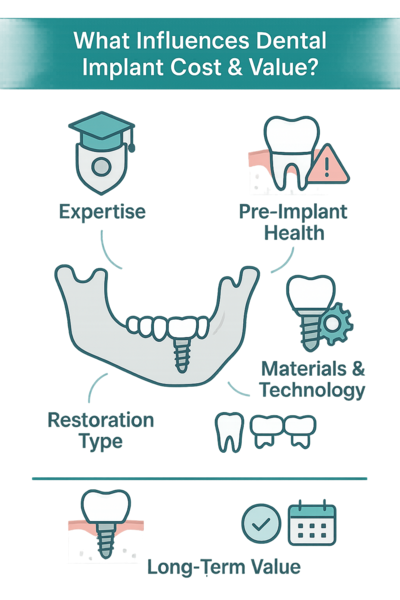
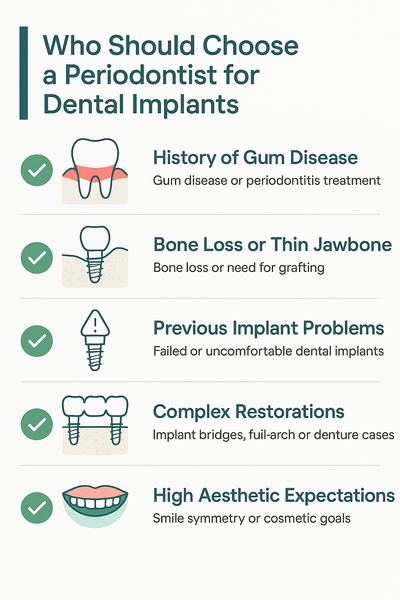
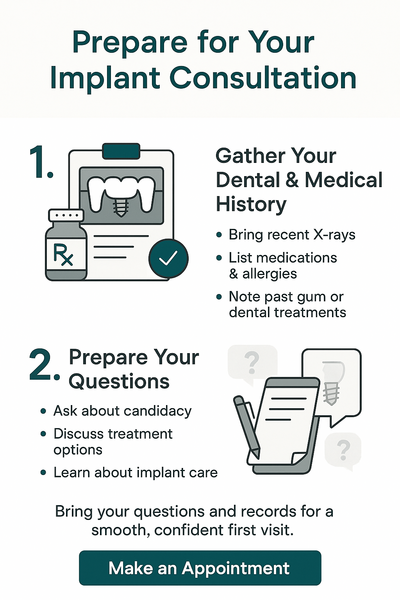


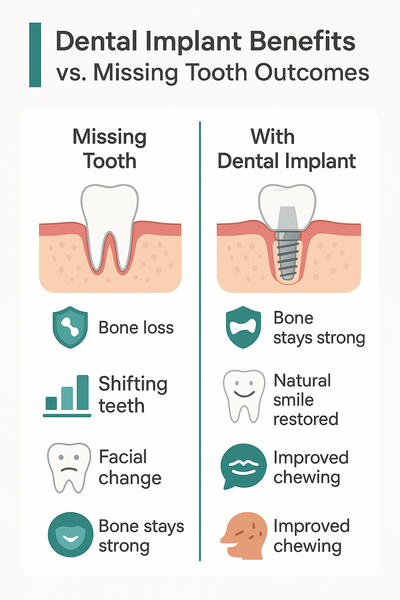
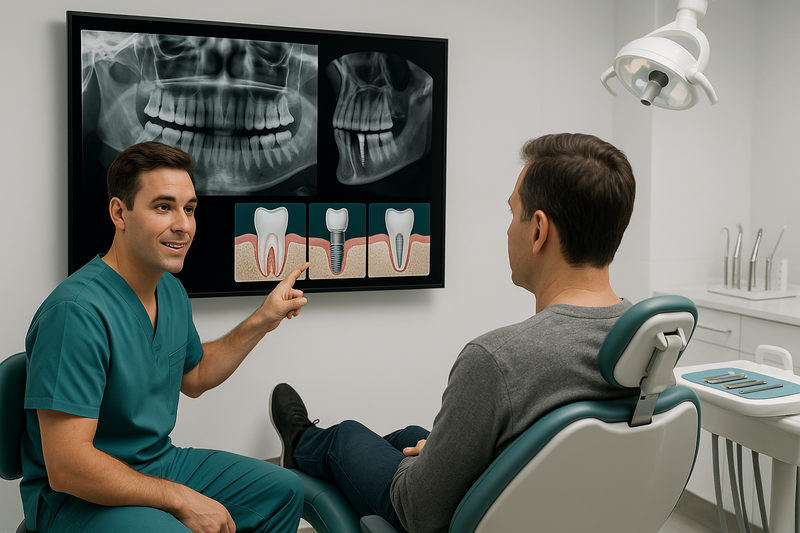
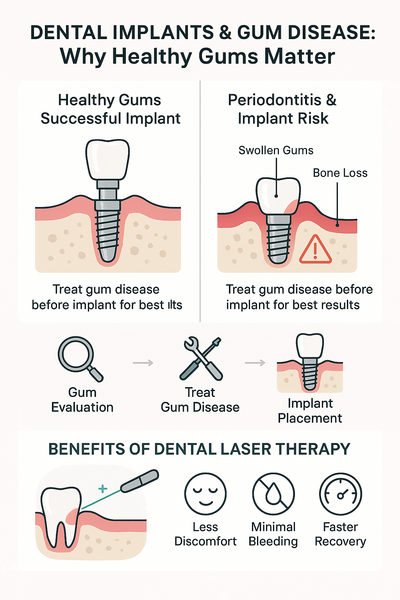
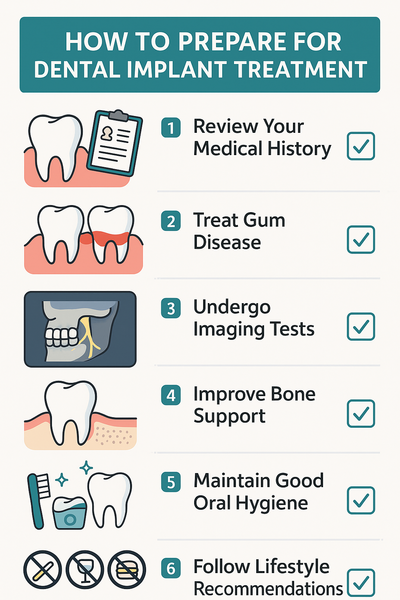

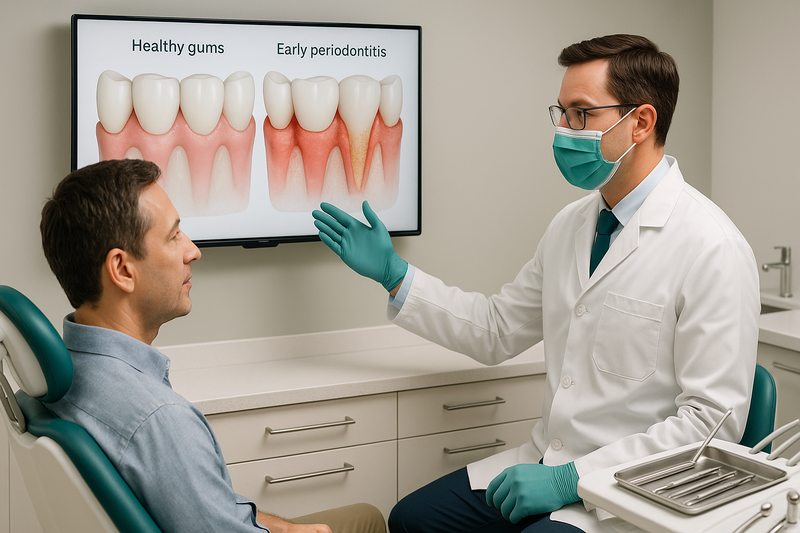
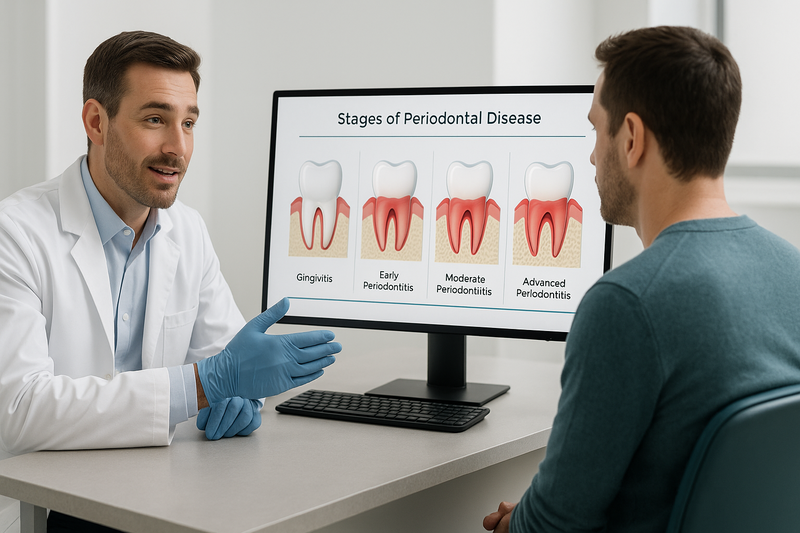
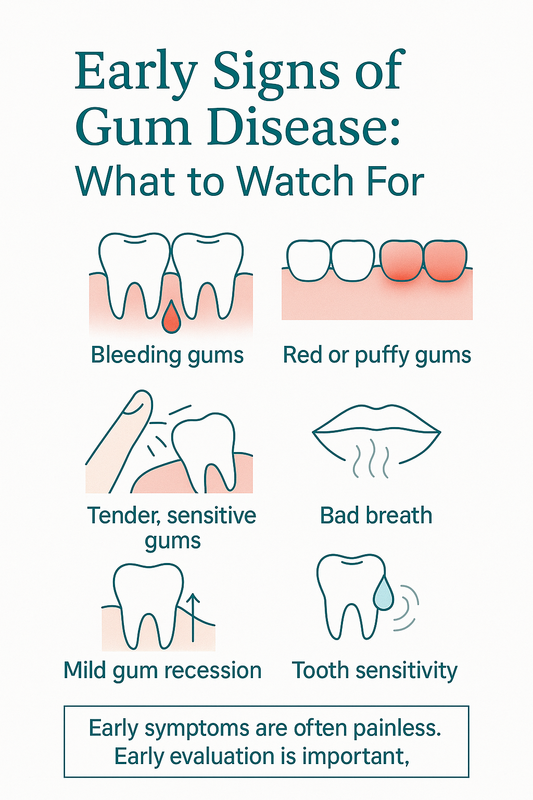
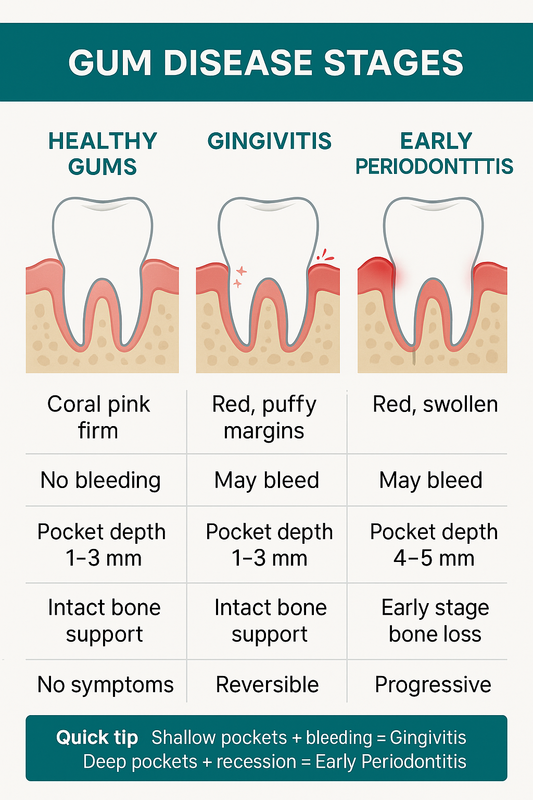
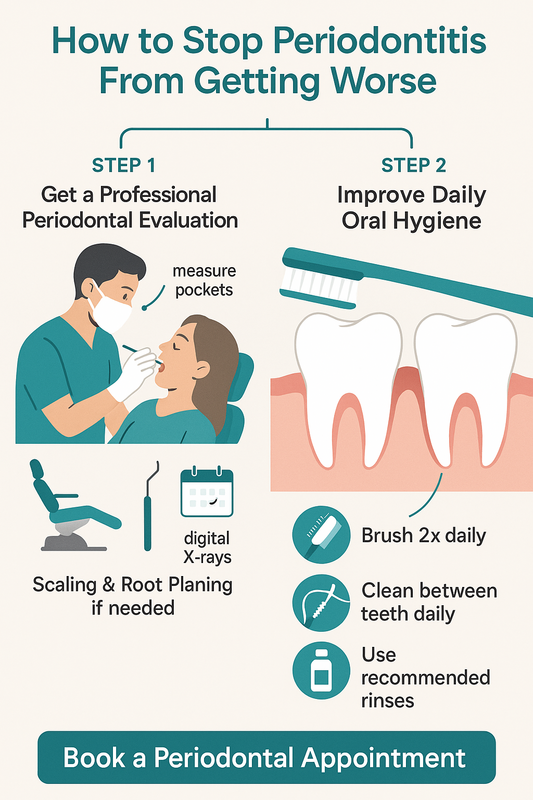
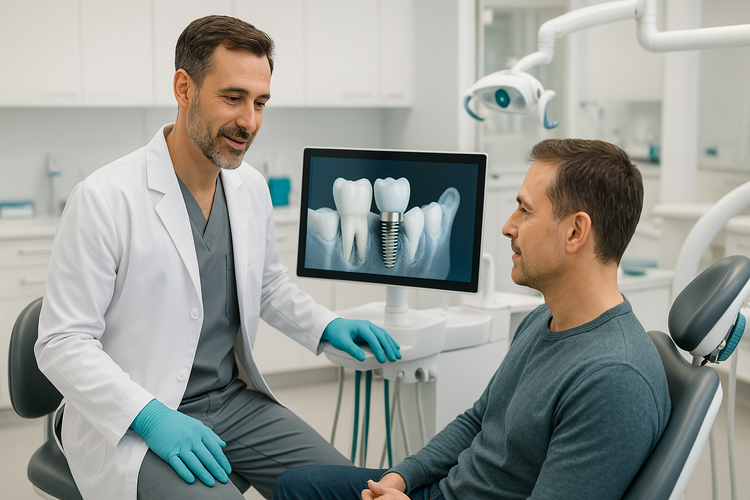
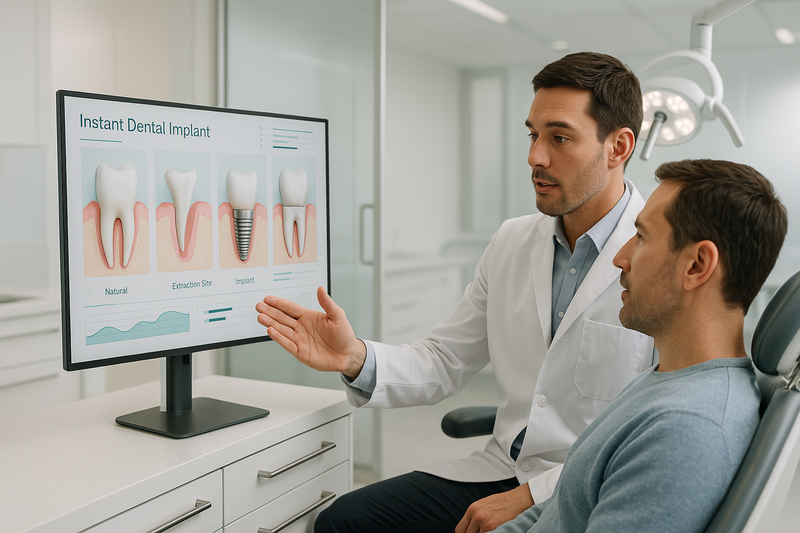
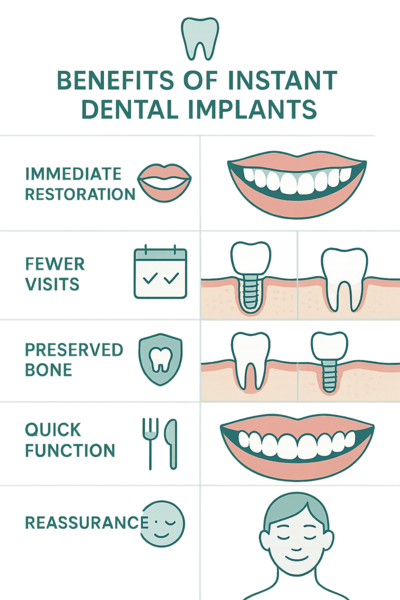
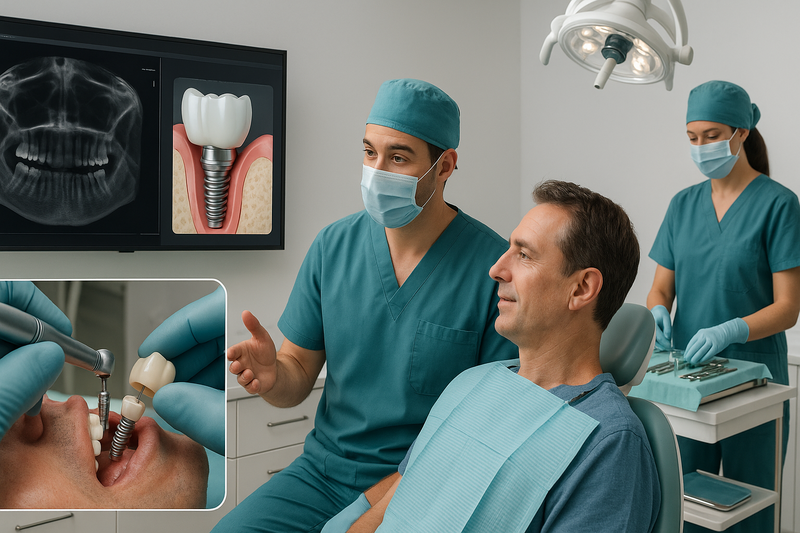
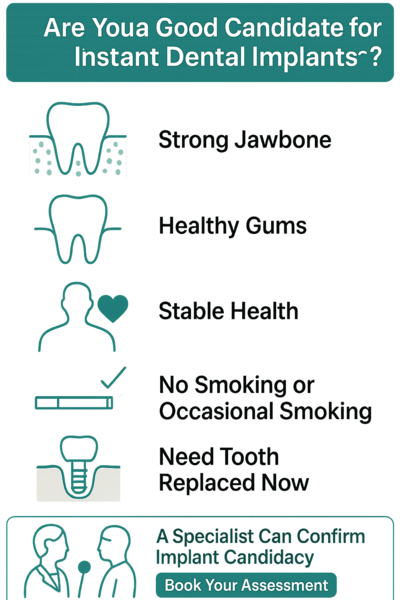
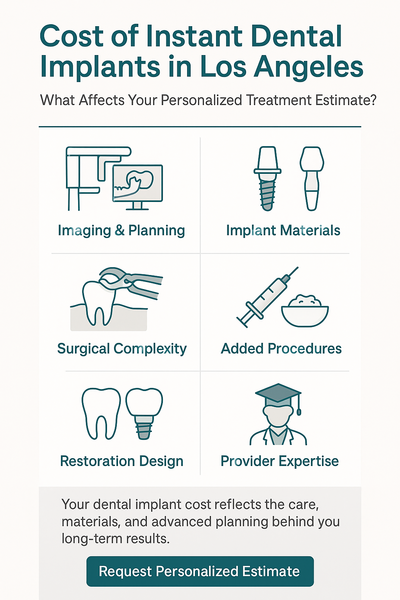
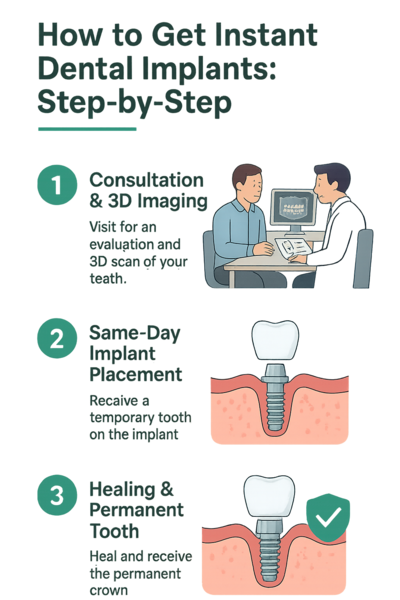
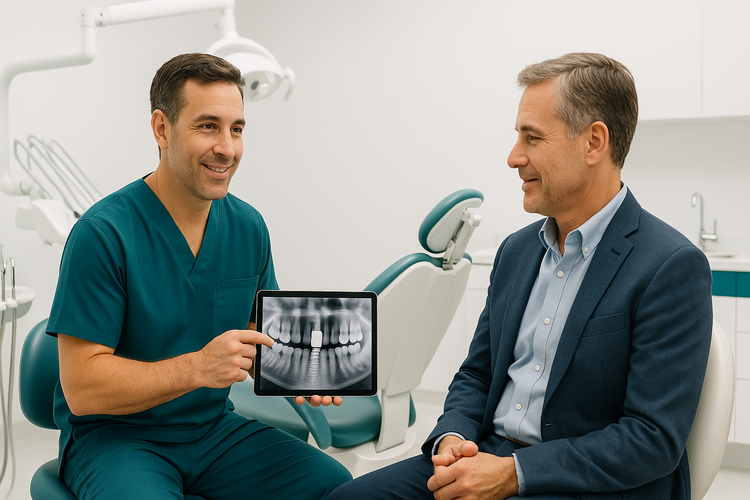
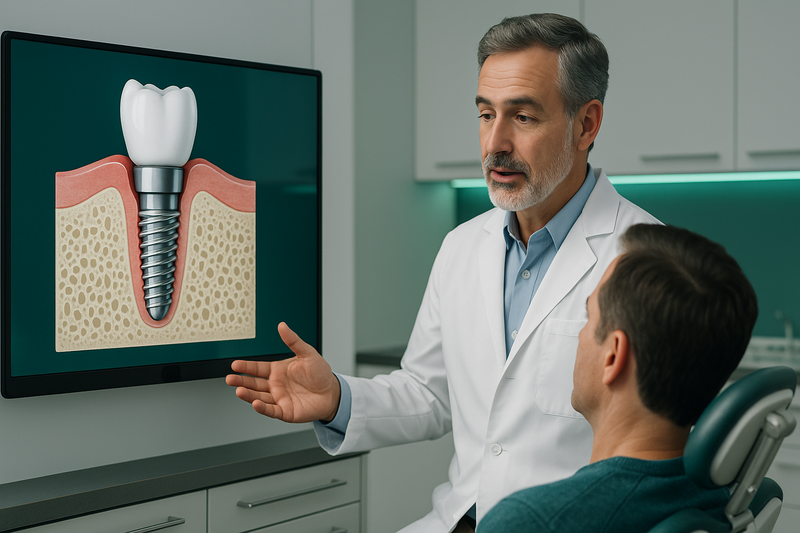
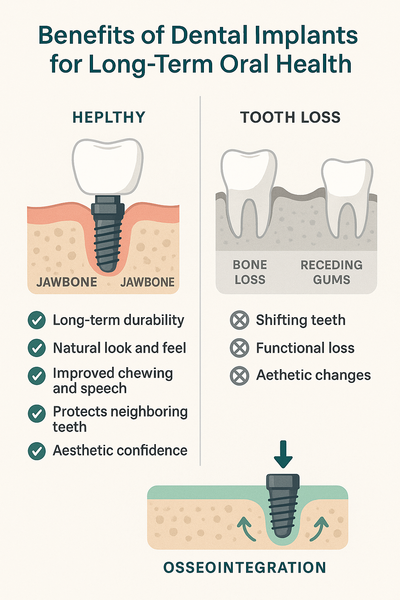
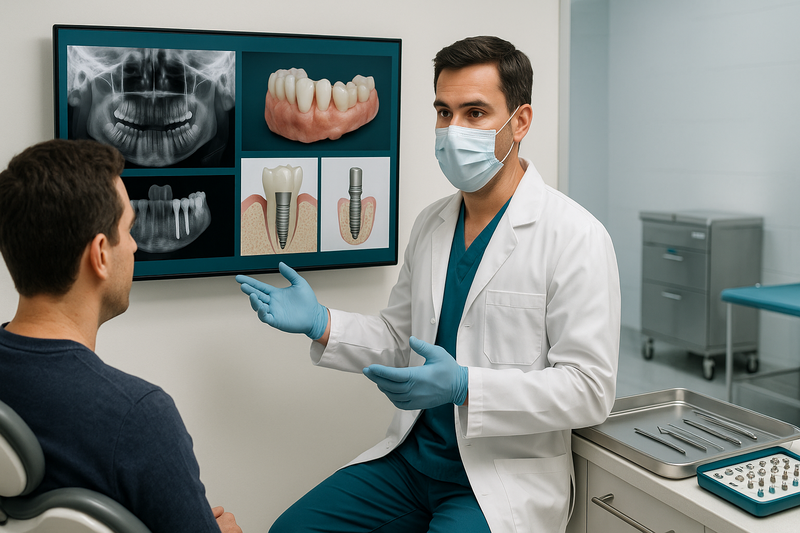
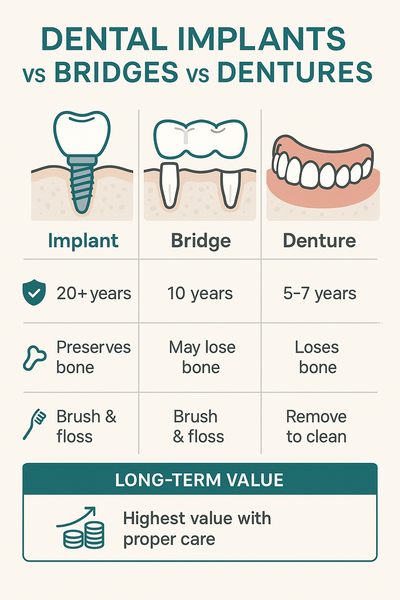
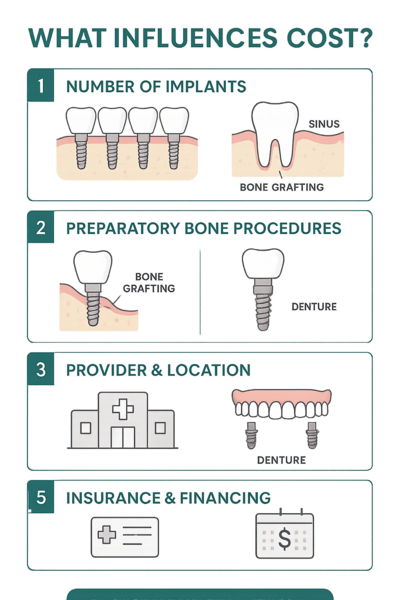
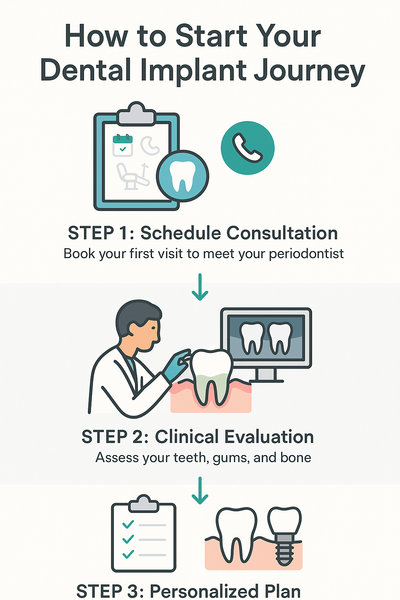
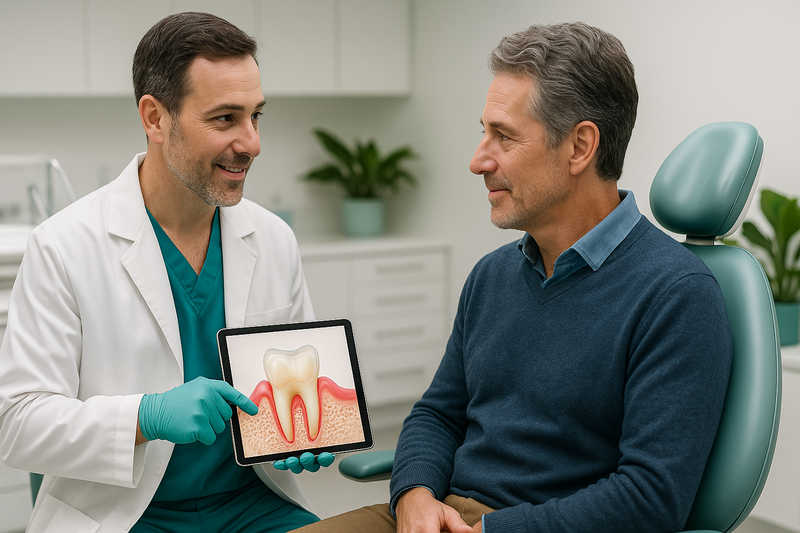
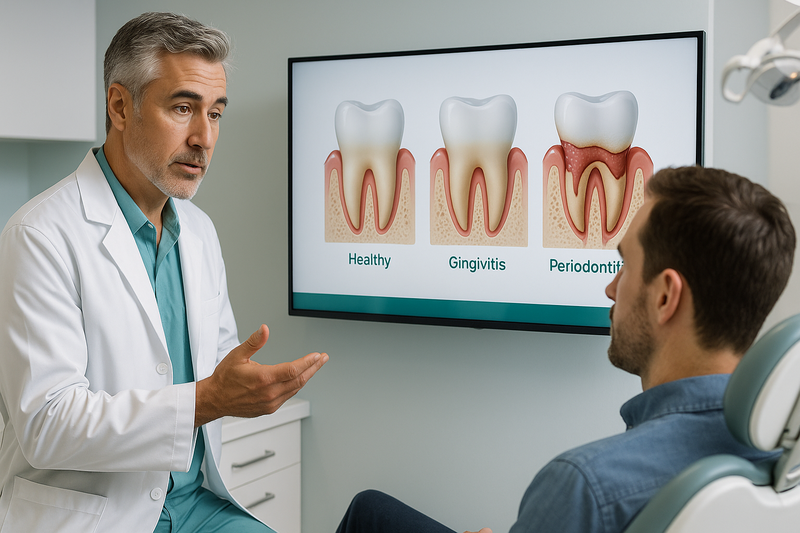
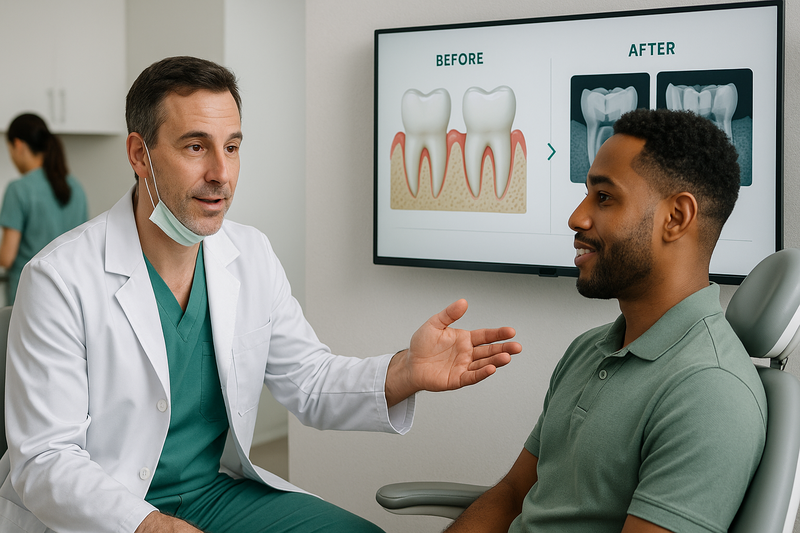
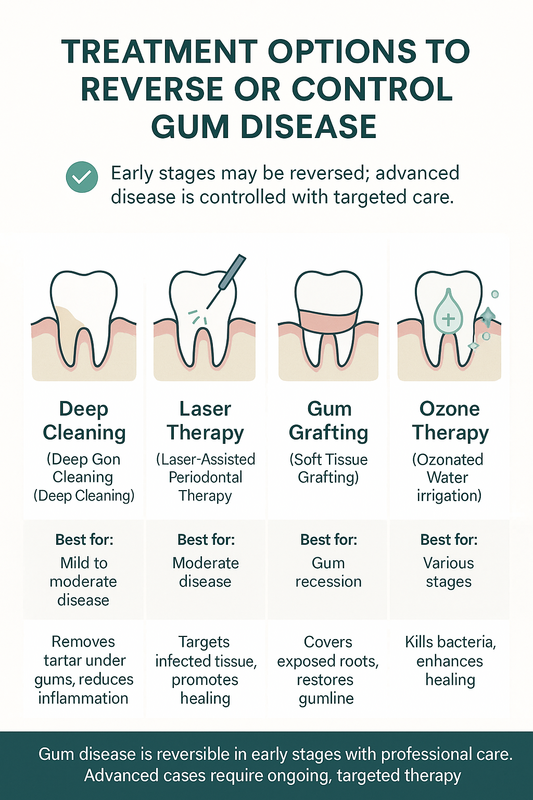
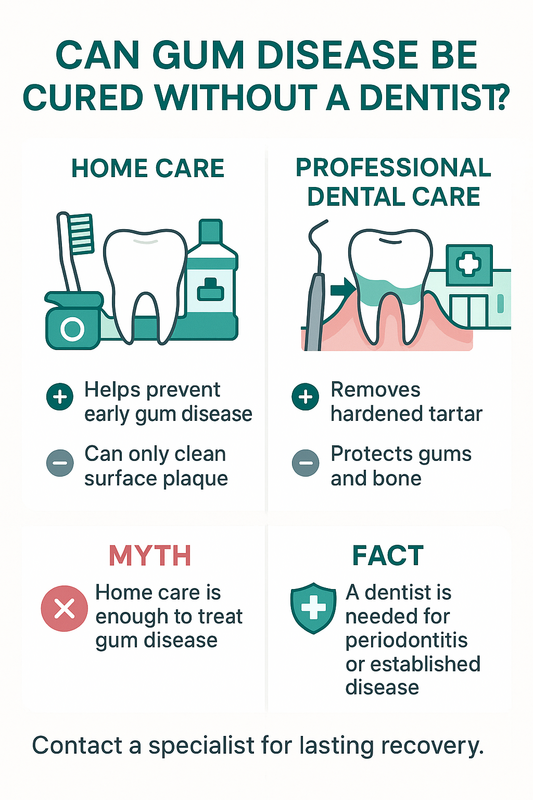
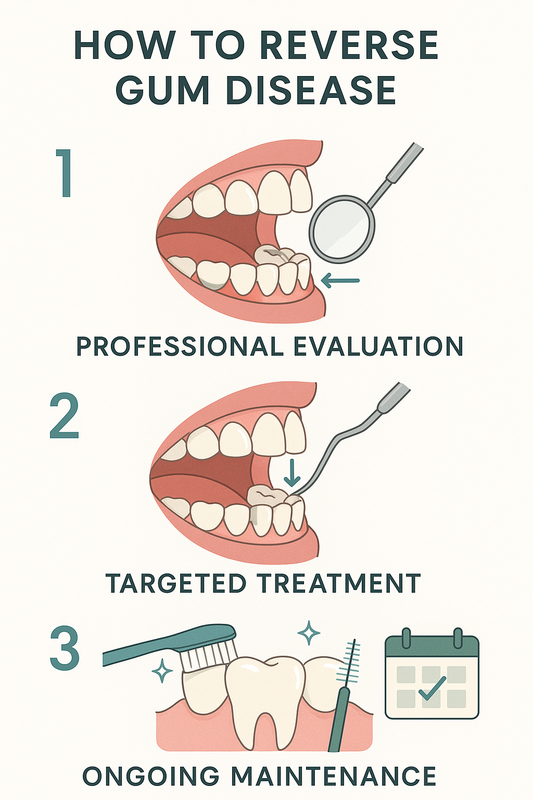
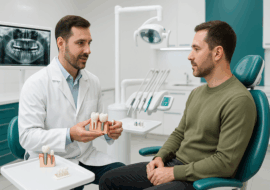
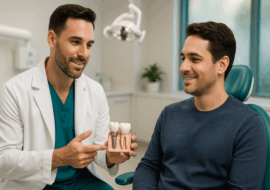
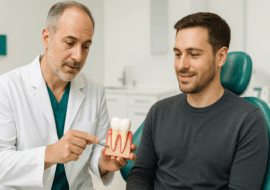



Recent Comments